CONTACTAbout UsCAREER OPPORTUNITIESADVERTISE WITH USPRIVACY POLICYPRIVACY PREFERENCESTERMS OF USELEGAL NOTICE
© 2025 Equal Entertainment LLC.
All Rights reserved
All Rights reserved
Scroll To Top 
















































![]()
By continuing to use our site, you agree to our Privacy Policy and Terms of Use.
Photos from the opening party for "The Violators" by Ruben Esparza and Slava Mogutin. Read more below.
Photos in this gallery are from the opening event of "The Violators" in New York. Below is a link to the site that has some of the uncensored versions of the art.
A letter from the curator Gio Black Peter:
Your posts have been deleted.
Your accounts have been disabled.
What kind of content posted on social media warrants having your account deactivated? Who determines genitalia too offensive for the general public to view while simultaneously approving images of, let's say, the Trump clan propping up the head of an elephant that they just murdered? At what point did we as a society decide that images of violence are acceptable but nudity and sexuality should be shunned? When people ask me what I've posted to merit having my account deactivated my answer is always the same; I post images of my work which is a reflection of my life-just like everybody else. To date I've had 10 Instagram accounts (it's why there is an x at the end of my instaname), 15 Facebooks, 2 YouTubes, and 4 Vimeos. One account was deleted for posting a photo of 2 topless friends sunbathing. That same summer I was invited to my friend's beach house where I shot a video of myself enjoying his outdoor shower. There went another account. On one occasion I posted a selfie with my bare ass. My fame hungry left testicle happened to also make an appearance and that was too much for the social media custodians. Butts are ok but ballsacks a big no-no. Recently my friend and fellow "Violator" artist *Slava Mogutin posted a photo of himself at an exhibition standing in front of a nude photograph only to have it deleted seconds later. I have artist friends from around the world, queers and non-queers who are constantly targeted by censorship on social media. Because queer voices and lives are less likely to be represented in mainstream media outlets, social media often provides those on the fringes of society with a vital outlet, a place to tell their stories. Images are important. It is why the advertising industry is worth billions. It is the reason why it is important to see multiple ethnicities, multiple sexualities, and all genders portrayed in magazines, on the runway, in films and in our social landscape. When one group is excluded from a platform where everyone else has a presence, it is discrimination. Censorship is a form of discrimination. Nothing is more clearly an indication of this than the message you receive when a post or account is disabled. For example when Instagram deletes your post the message you receive states: "We removed your post because it doesn't follow our community guidelines. If you violate our guidelines again, your account may be restricted or disabled." That is how "The Violators" group exhibition was born. I wanted to celebrate artists from "my community" and give a platform to the images that were an expression of their lives. Images which were deemed "too offensive". Inspired by the guerrilla artists from New York City's '80s downtown scene (David Wojnarowicz, Kenny Scharf, Diane Arbus, and Jean-Michel Basquiat to name a few) the exhibition will take place in my show studio. In the words of of Aretha Franklin and Annie Lennox "Sisters are doin' it for themselves". - Gio Black Peter, NYC 2018
"The Violators," through August 13, 2018, at Studio Uzi (See uncensored versions of some of the art here.) Curated by gioblackpeter.com.
*Slava Mogutin -- An open letter to Mark Zuckerberg on The Huffington Post: "The Censorship Monster: Who's Afraid Of A Queer Nipple In The Digital Age?"
Ruben Esparza is an L.A.-based artist/curator, and founder and director of the Queer Biennial.
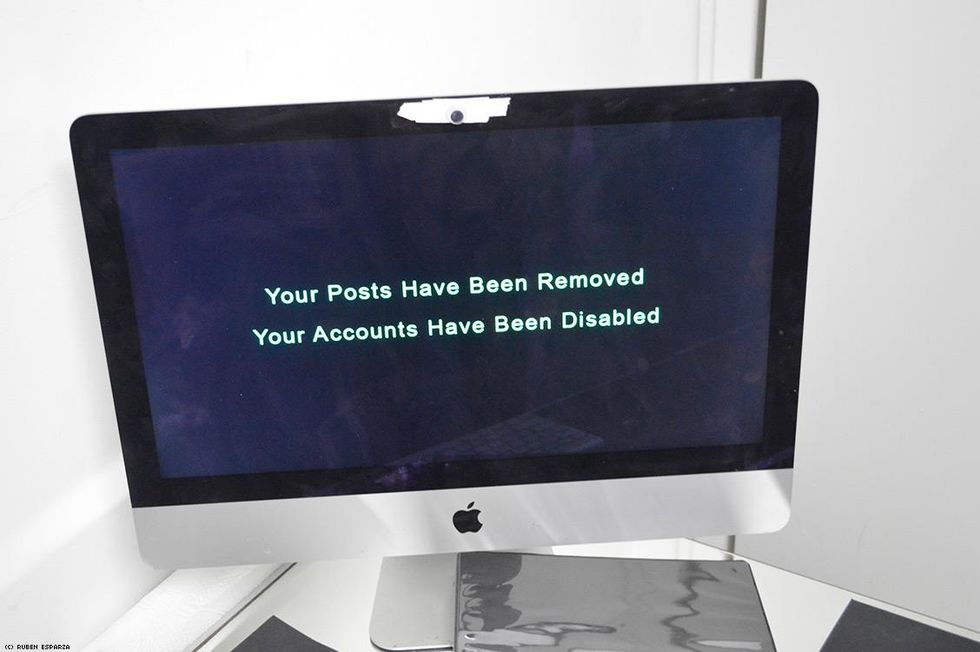
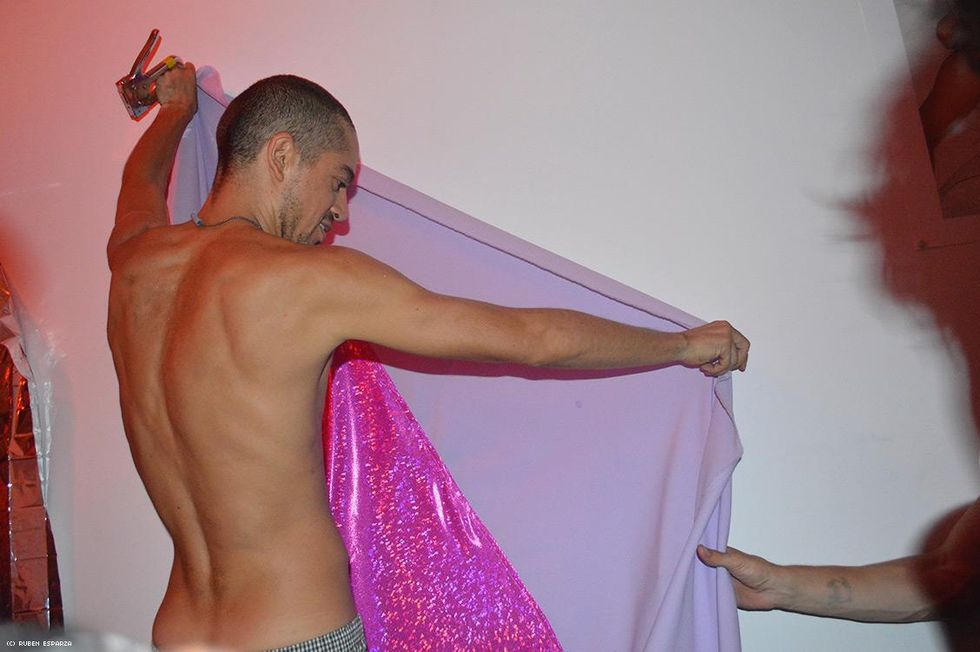
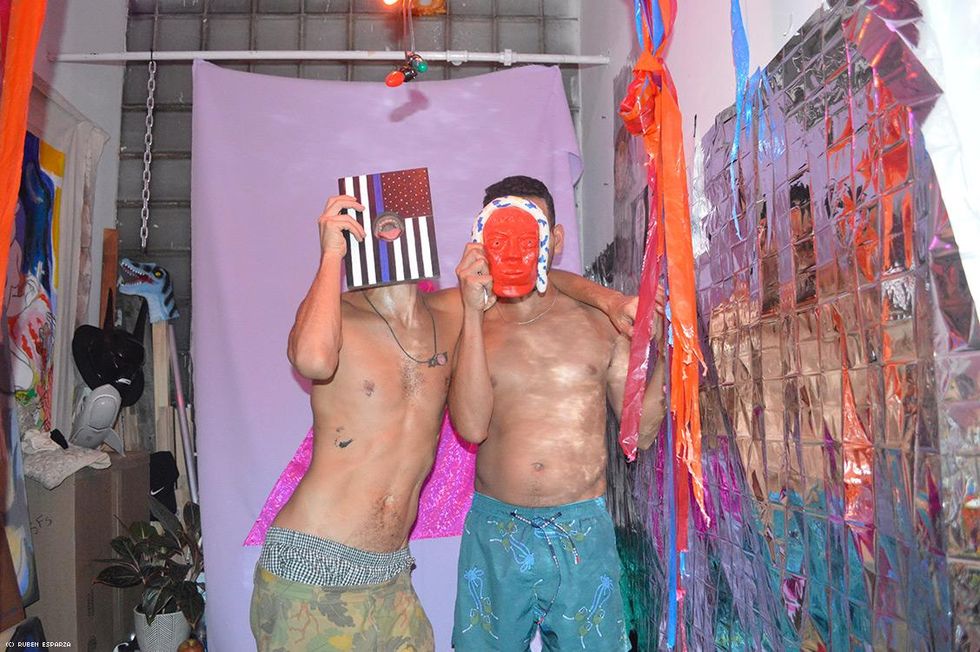
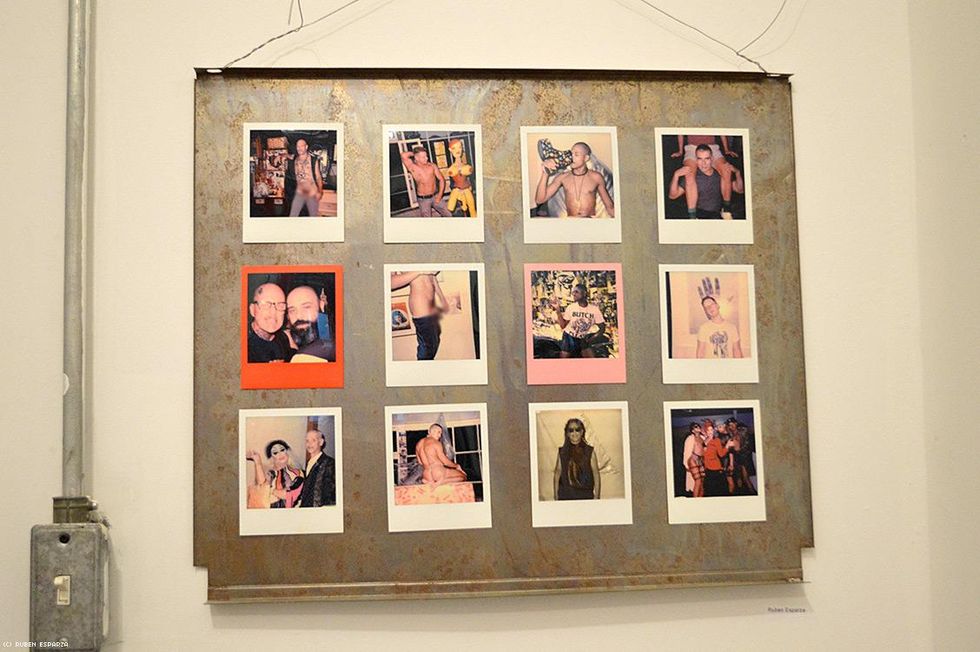
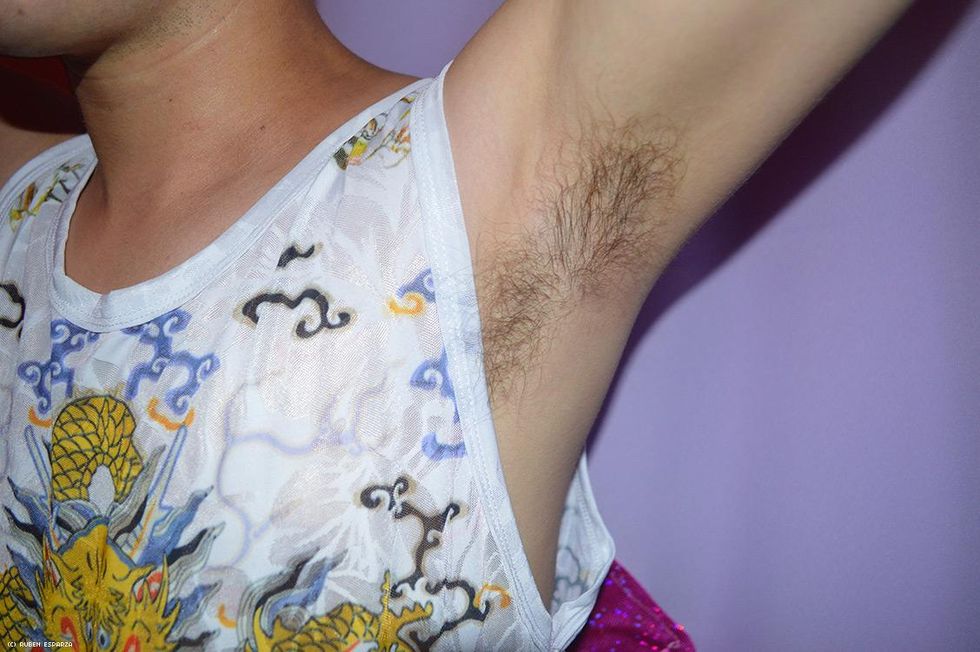
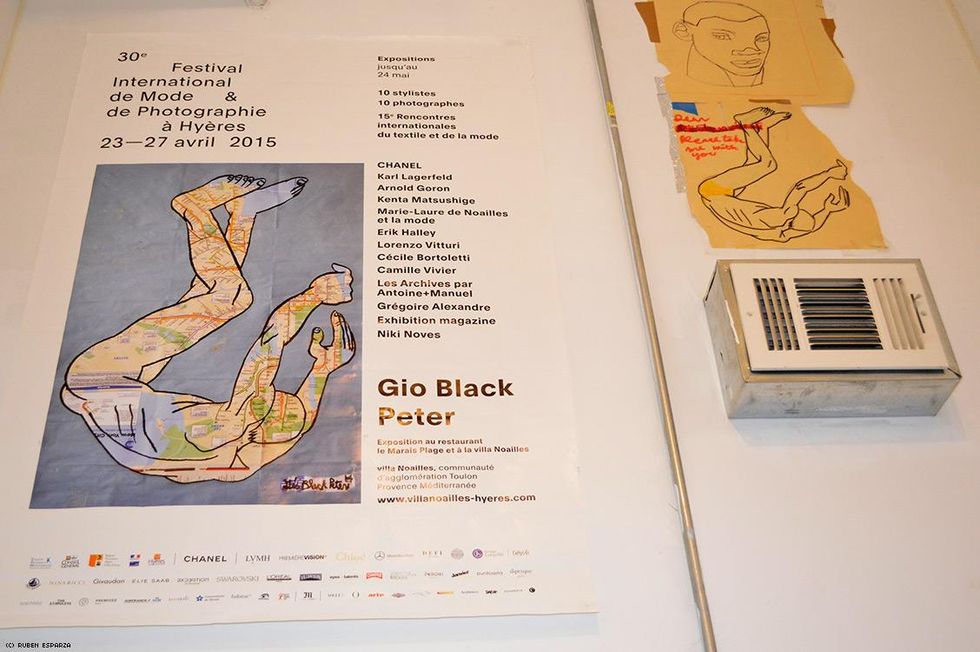
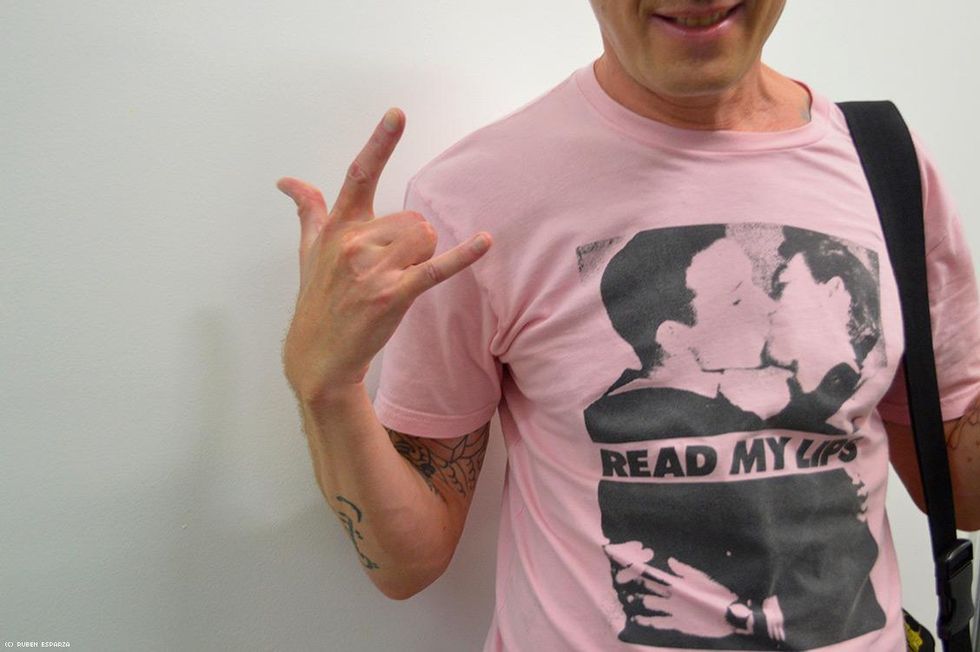
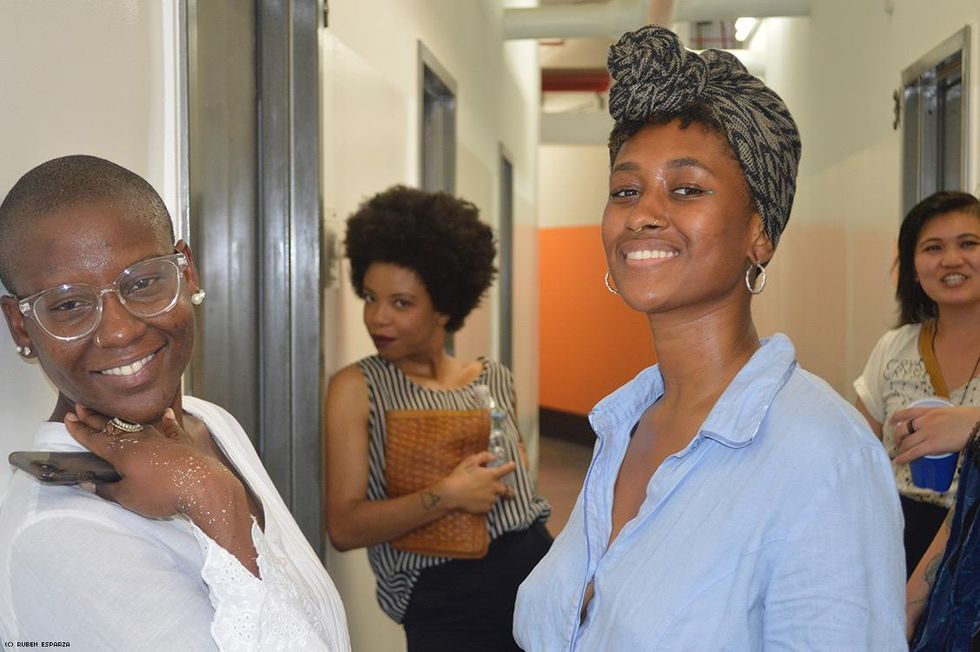
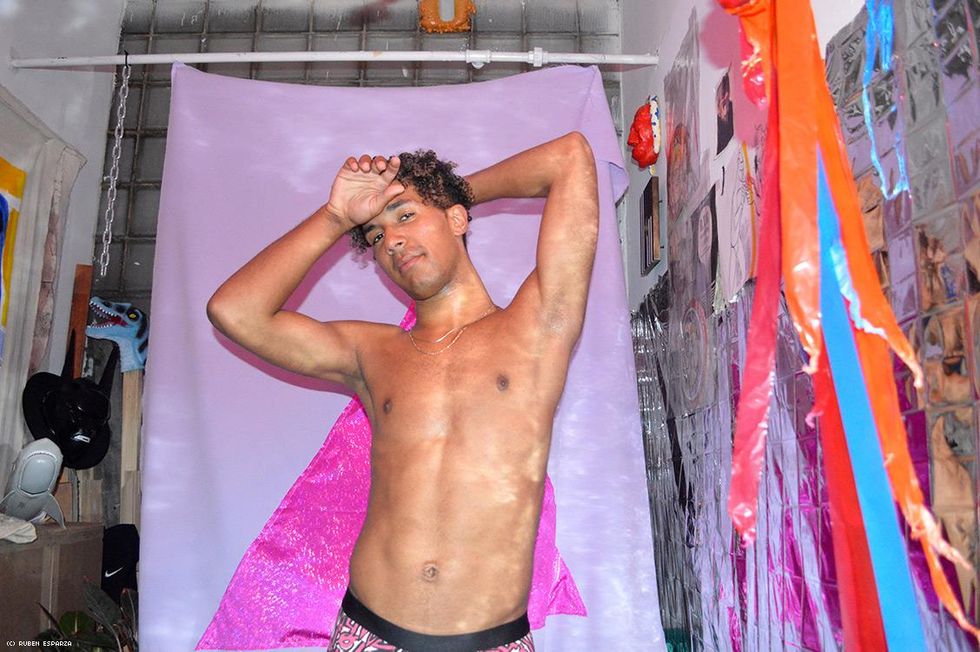
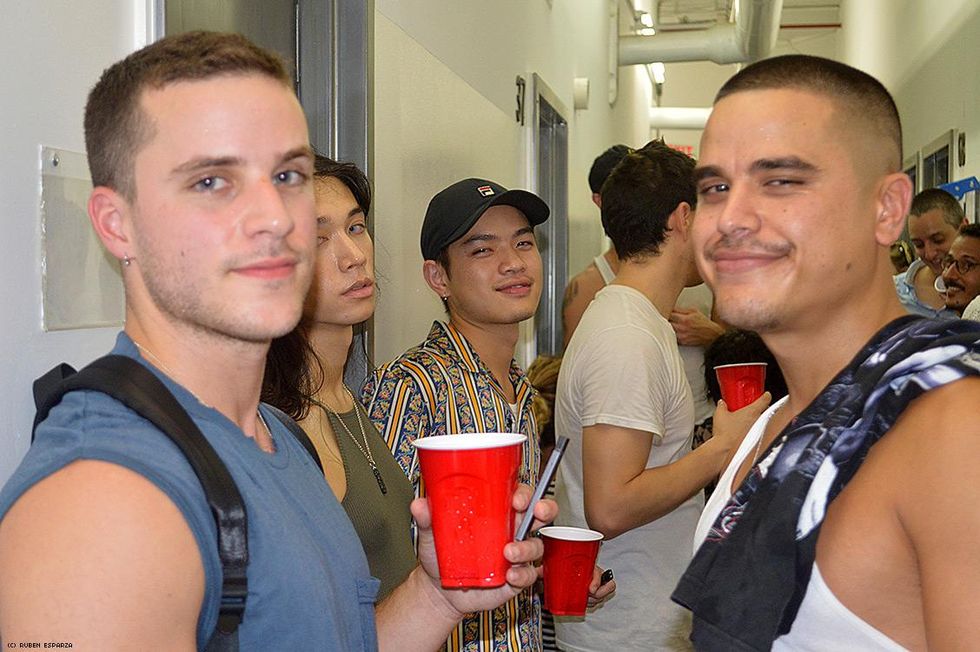

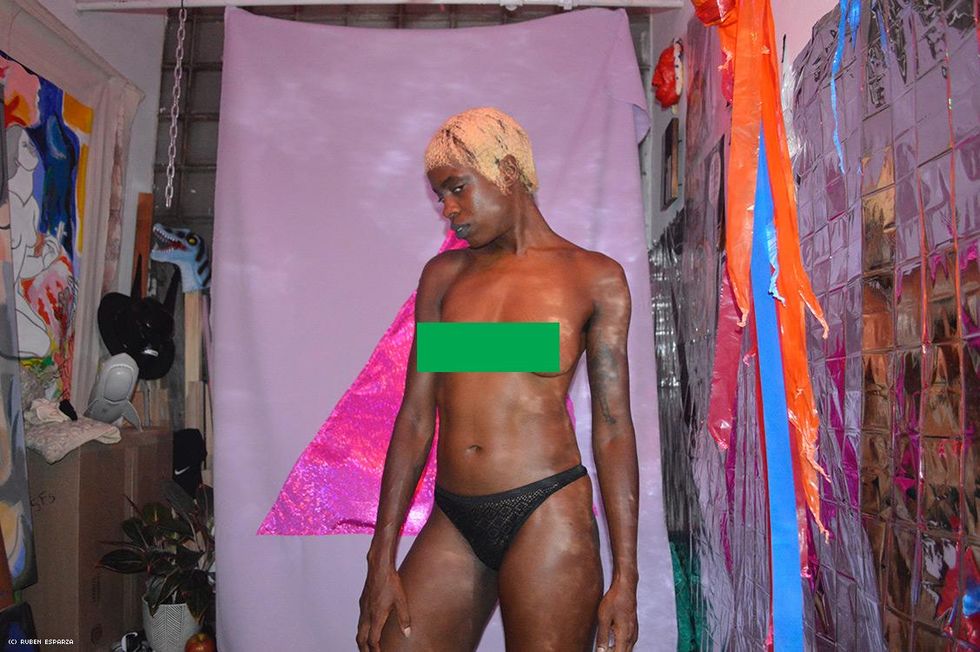
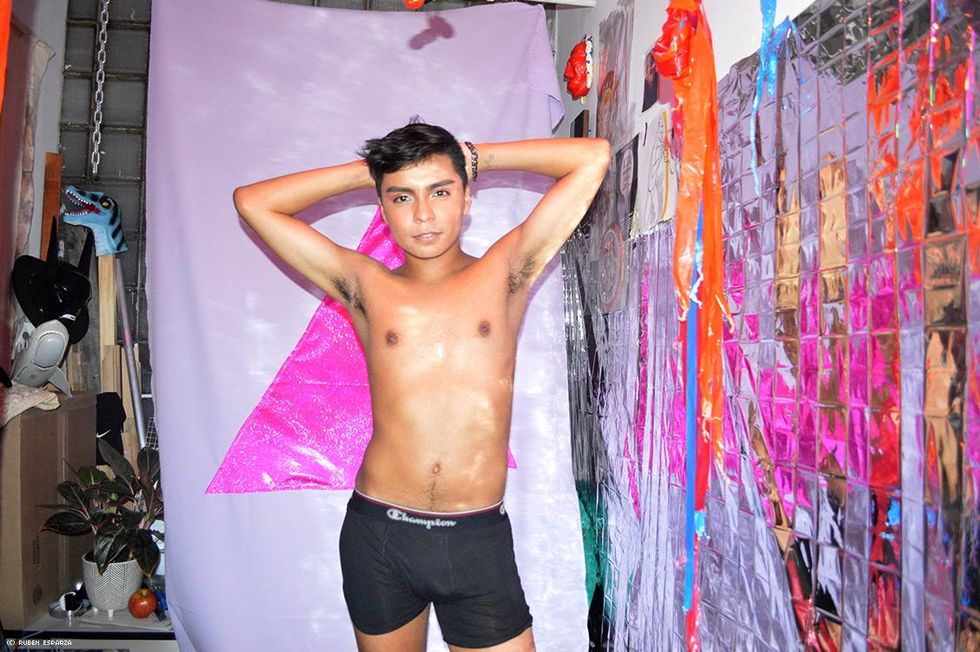
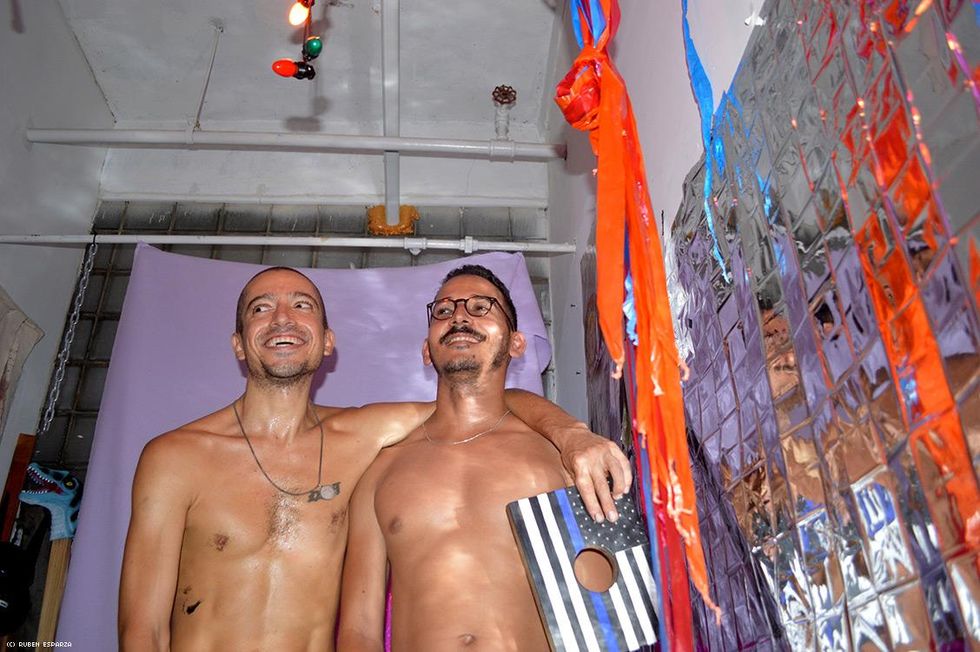
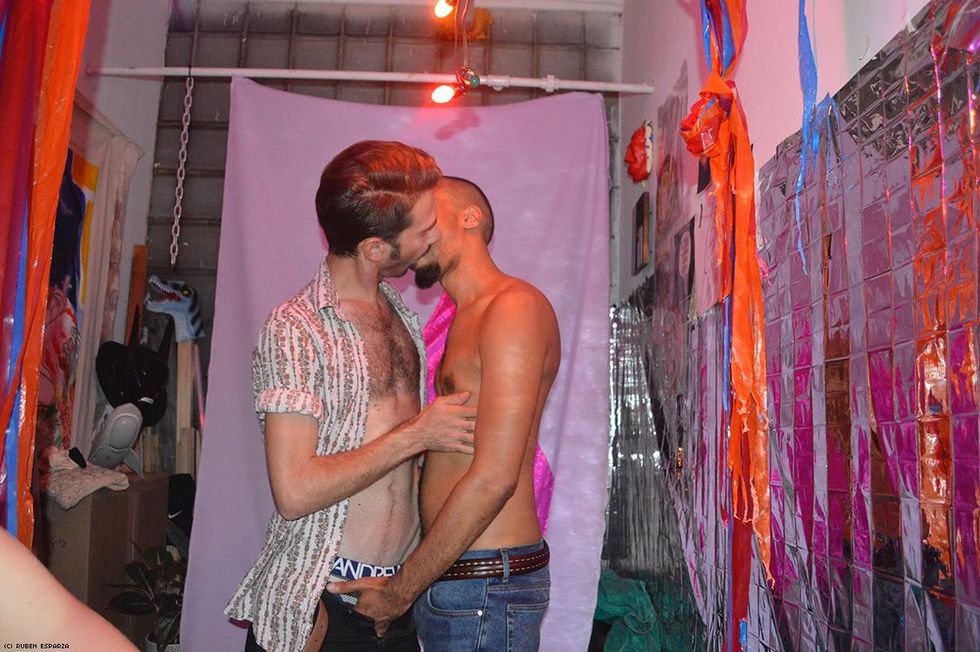
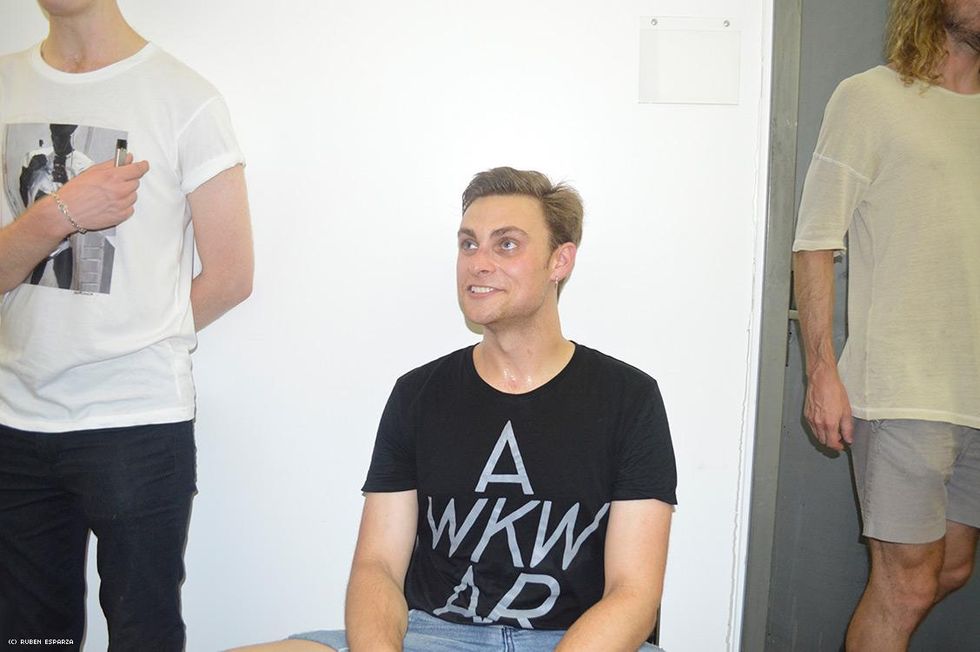
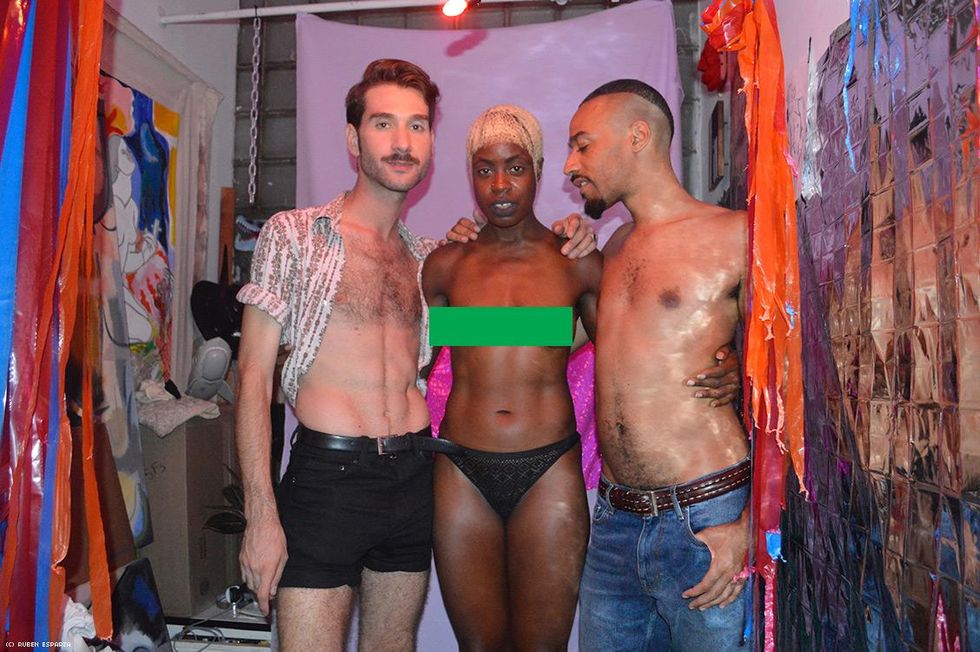
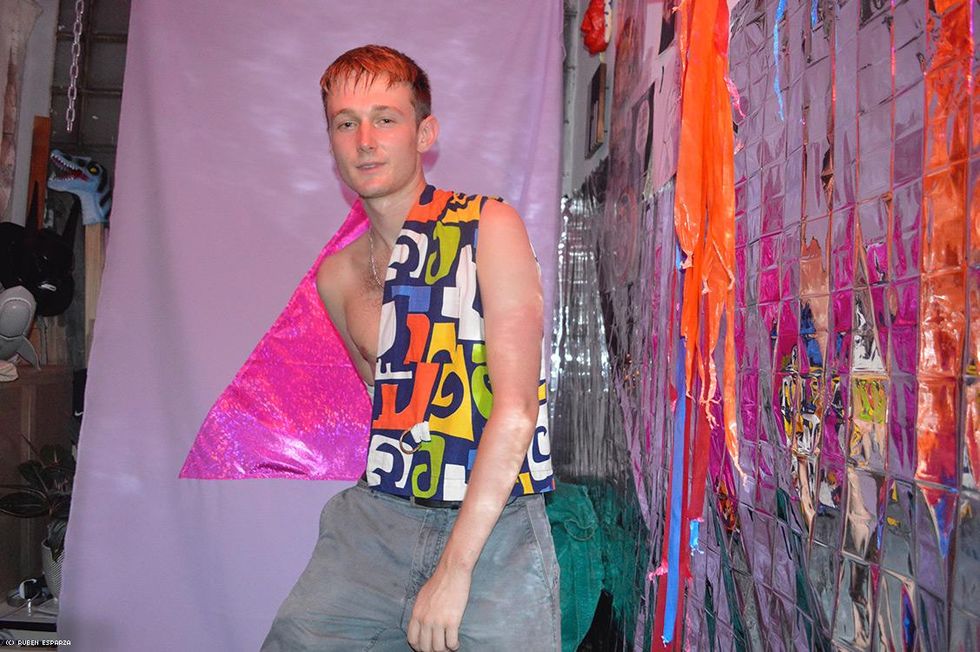
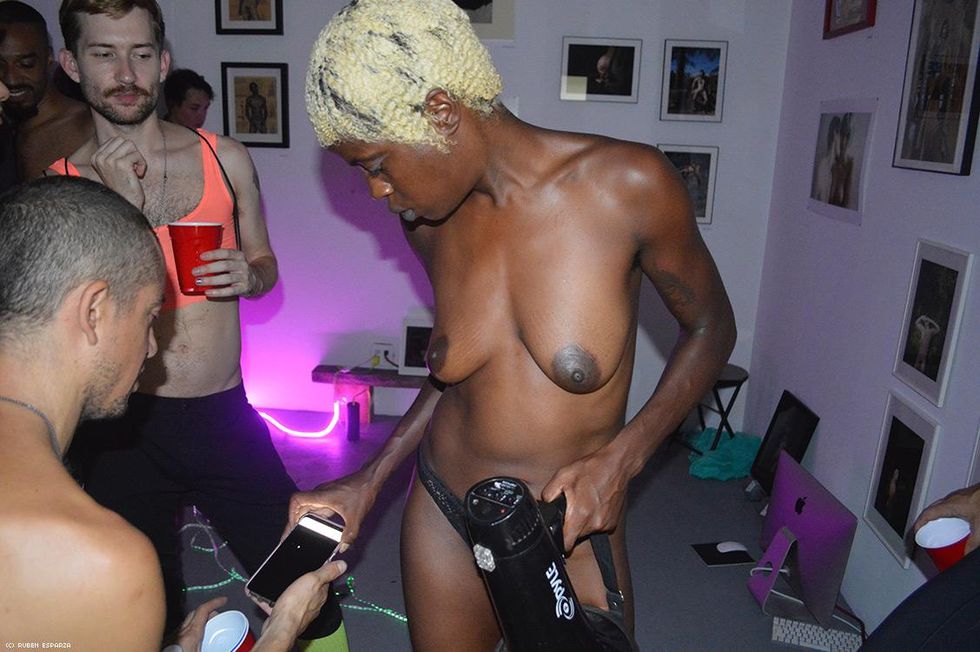
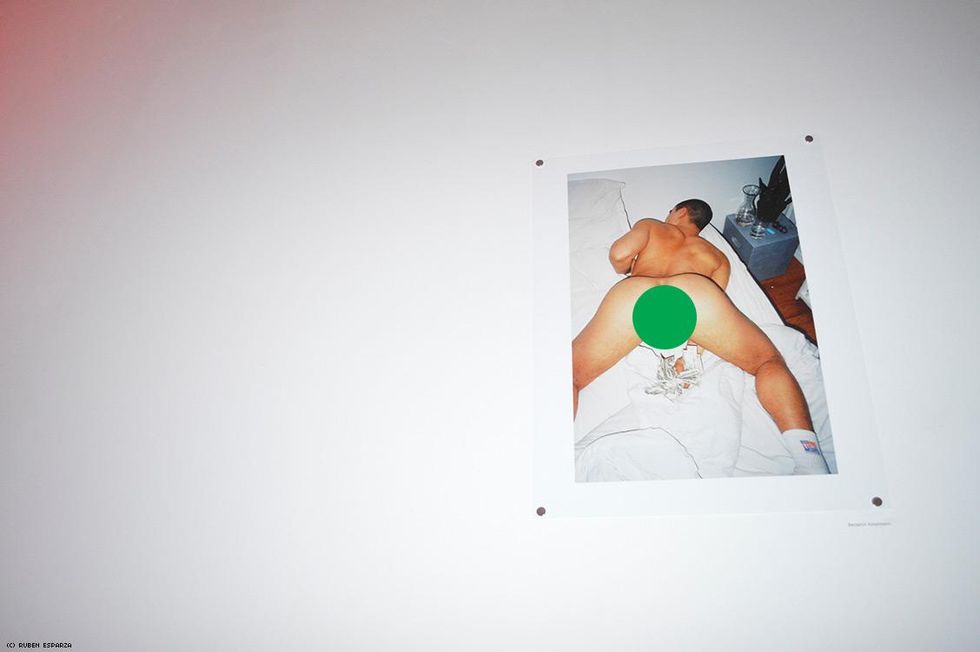
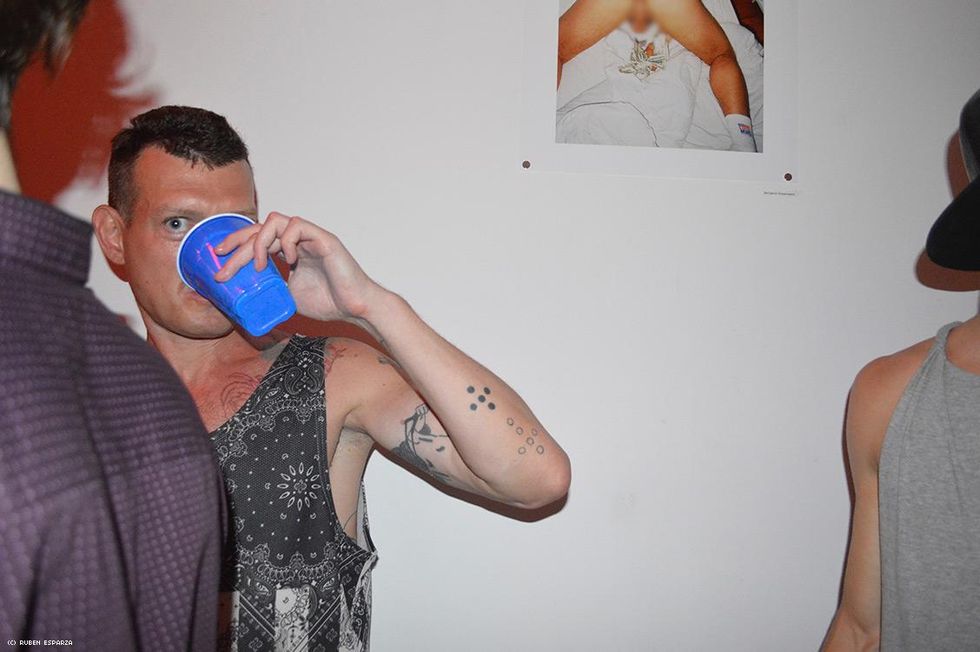
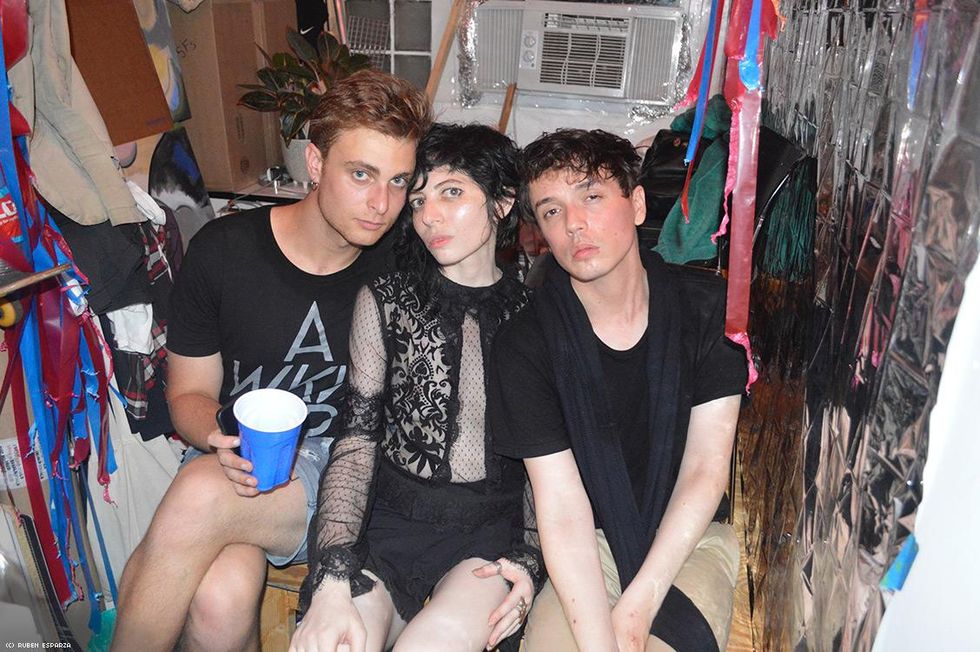
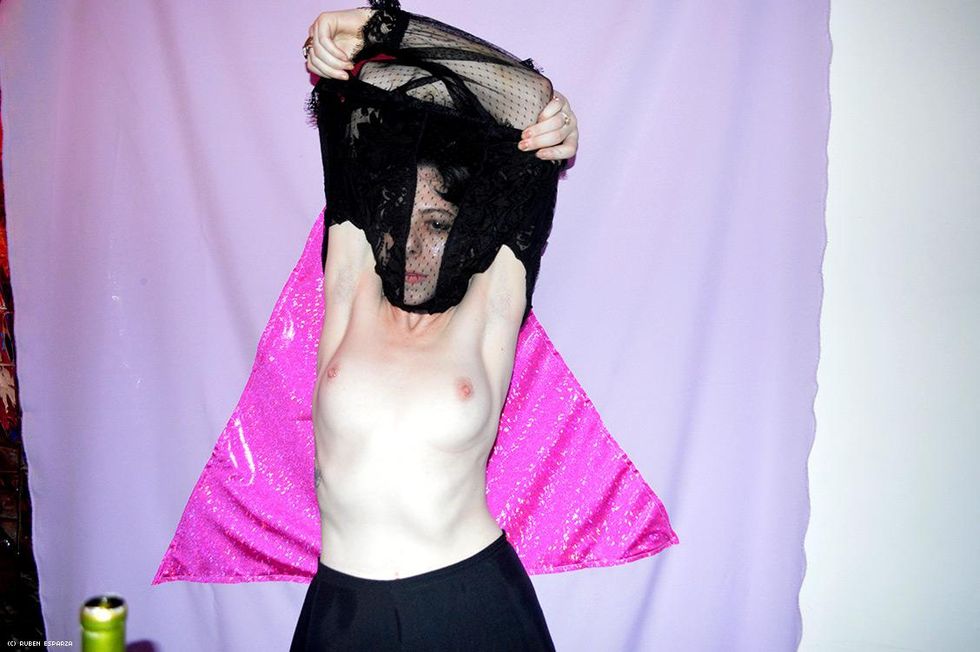
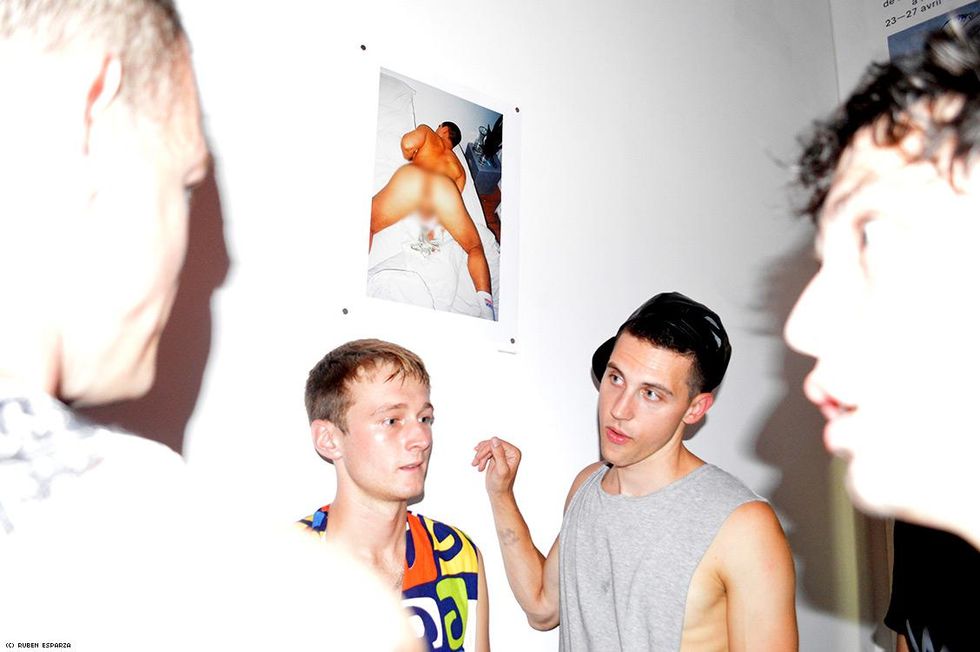
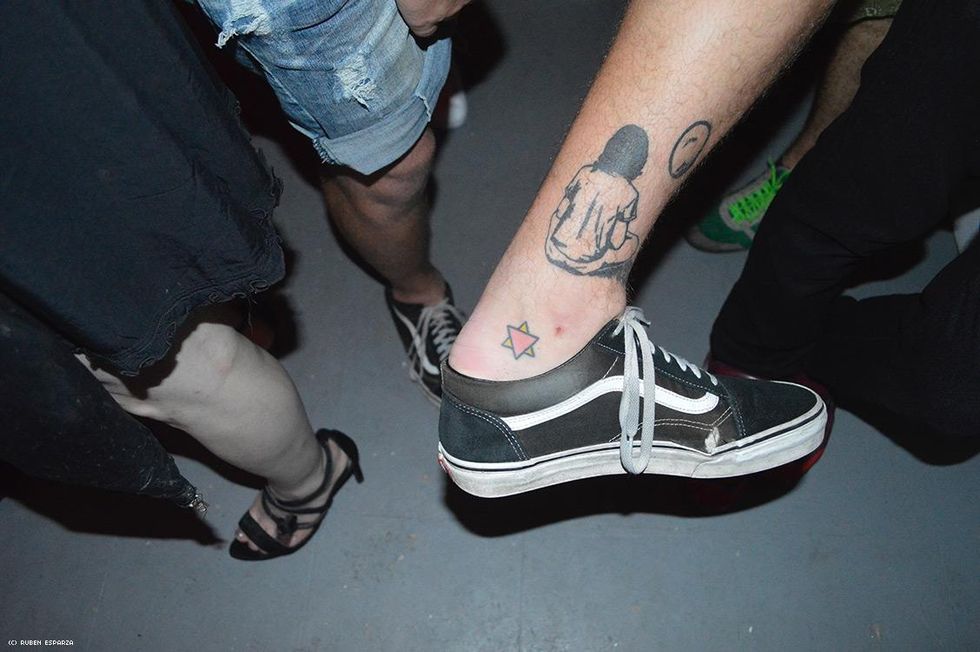
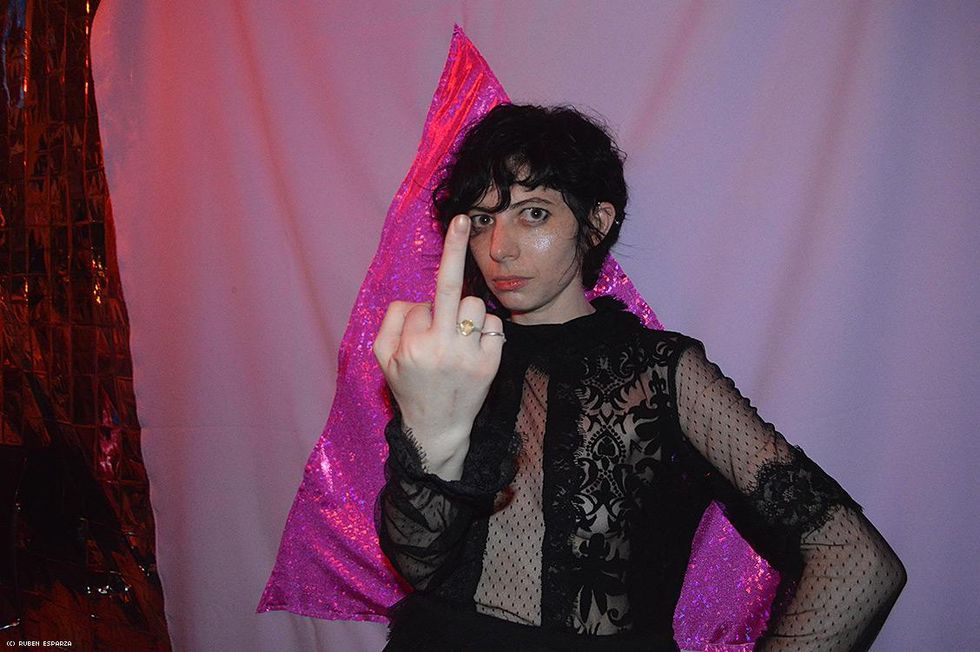
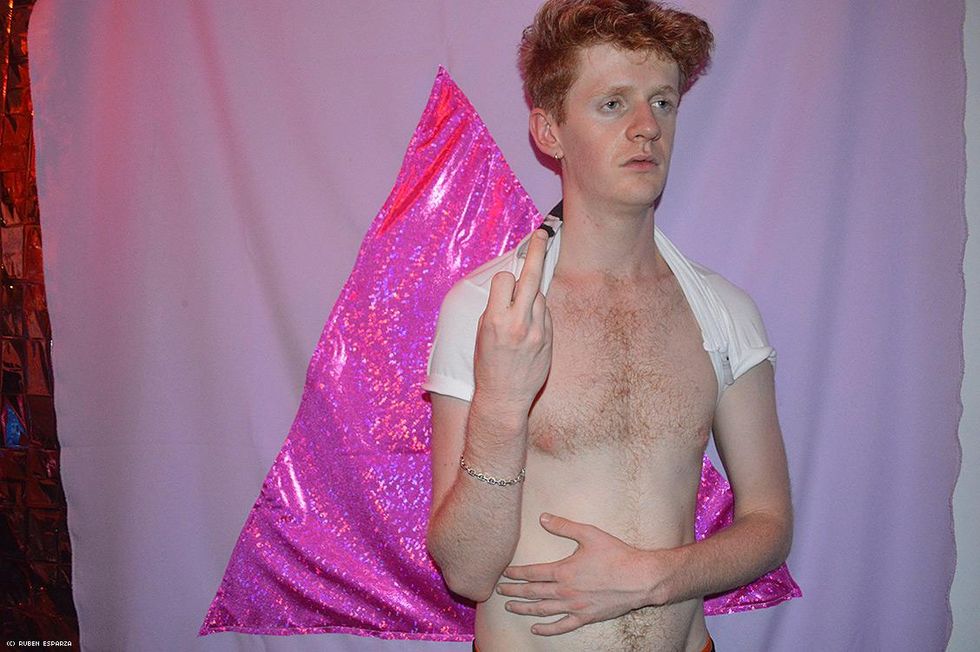
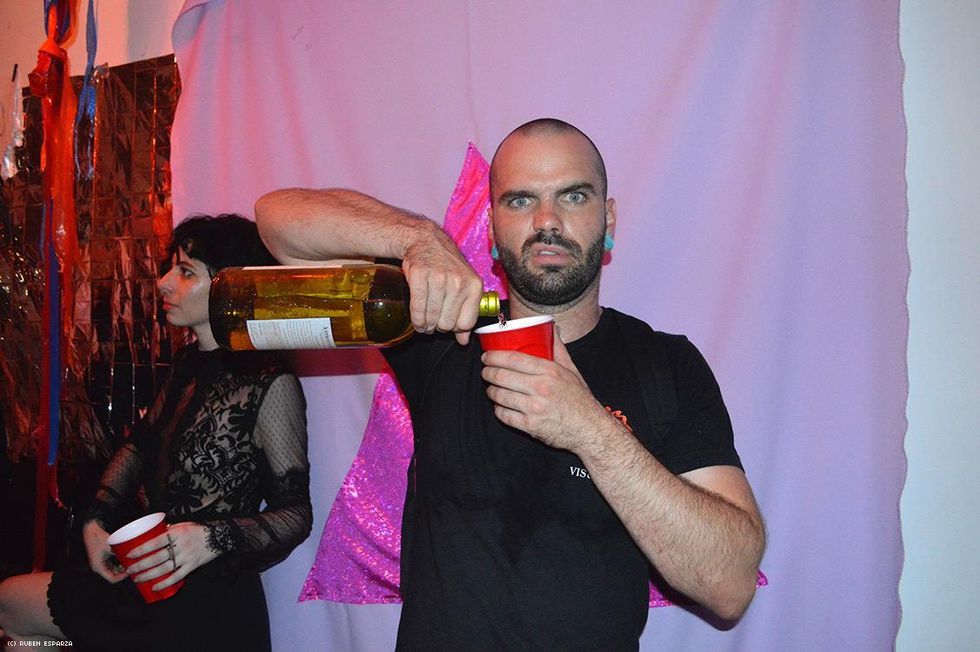
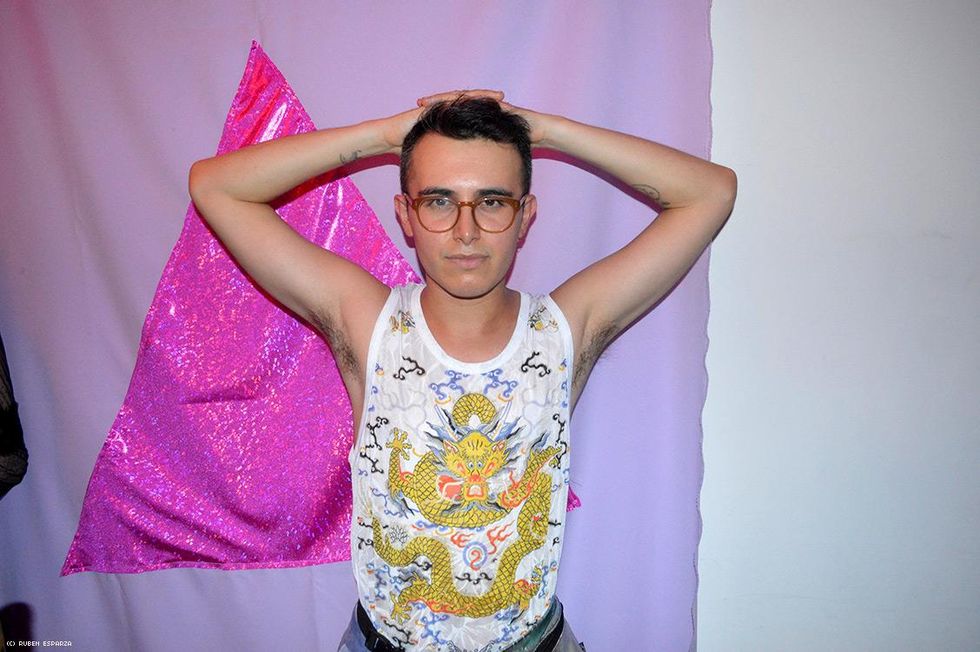
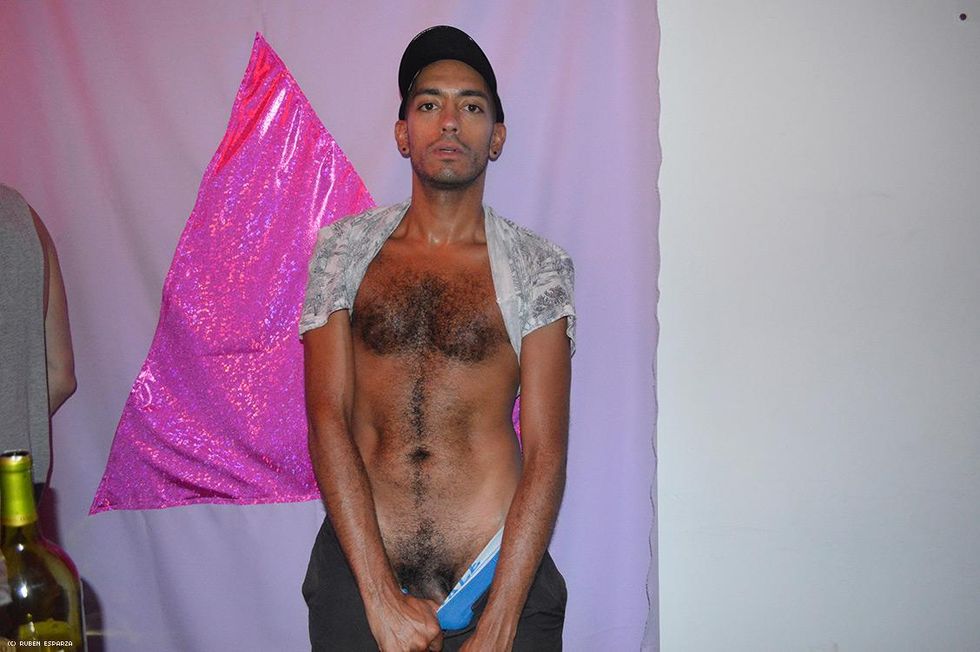
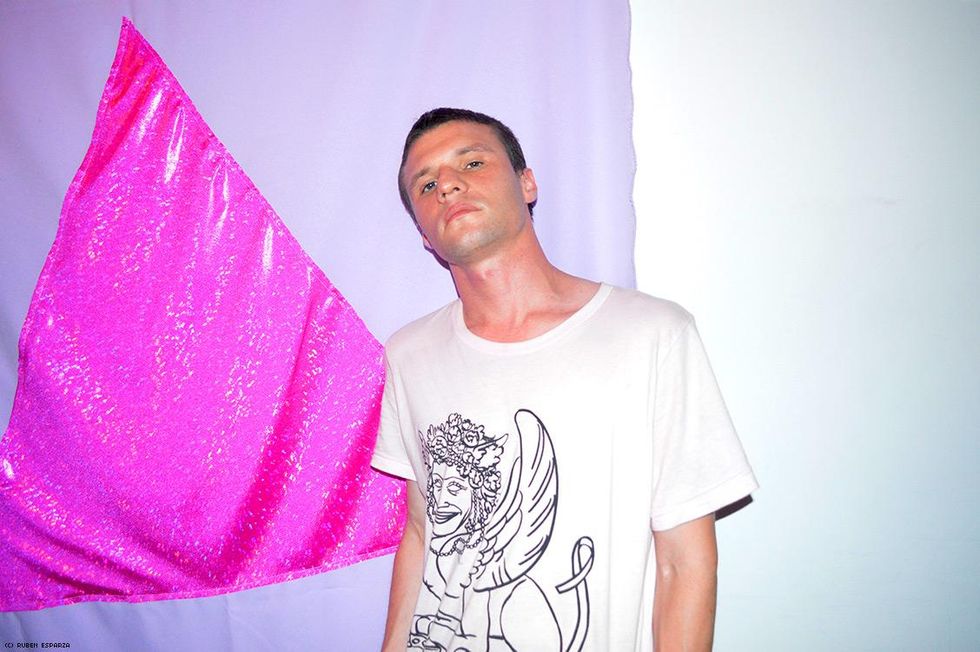

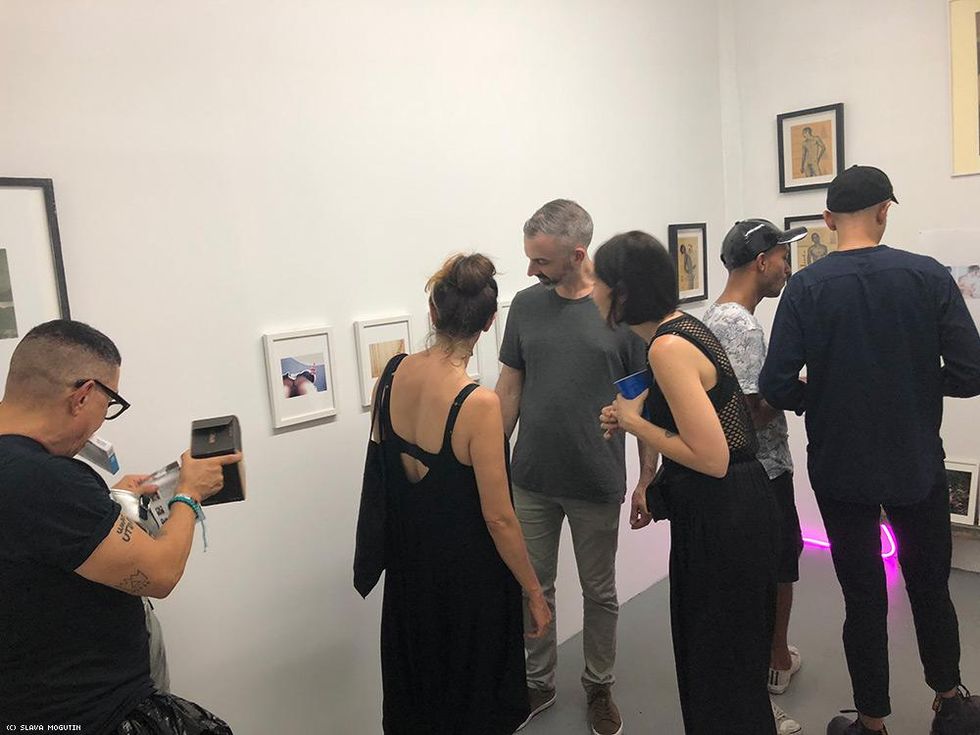
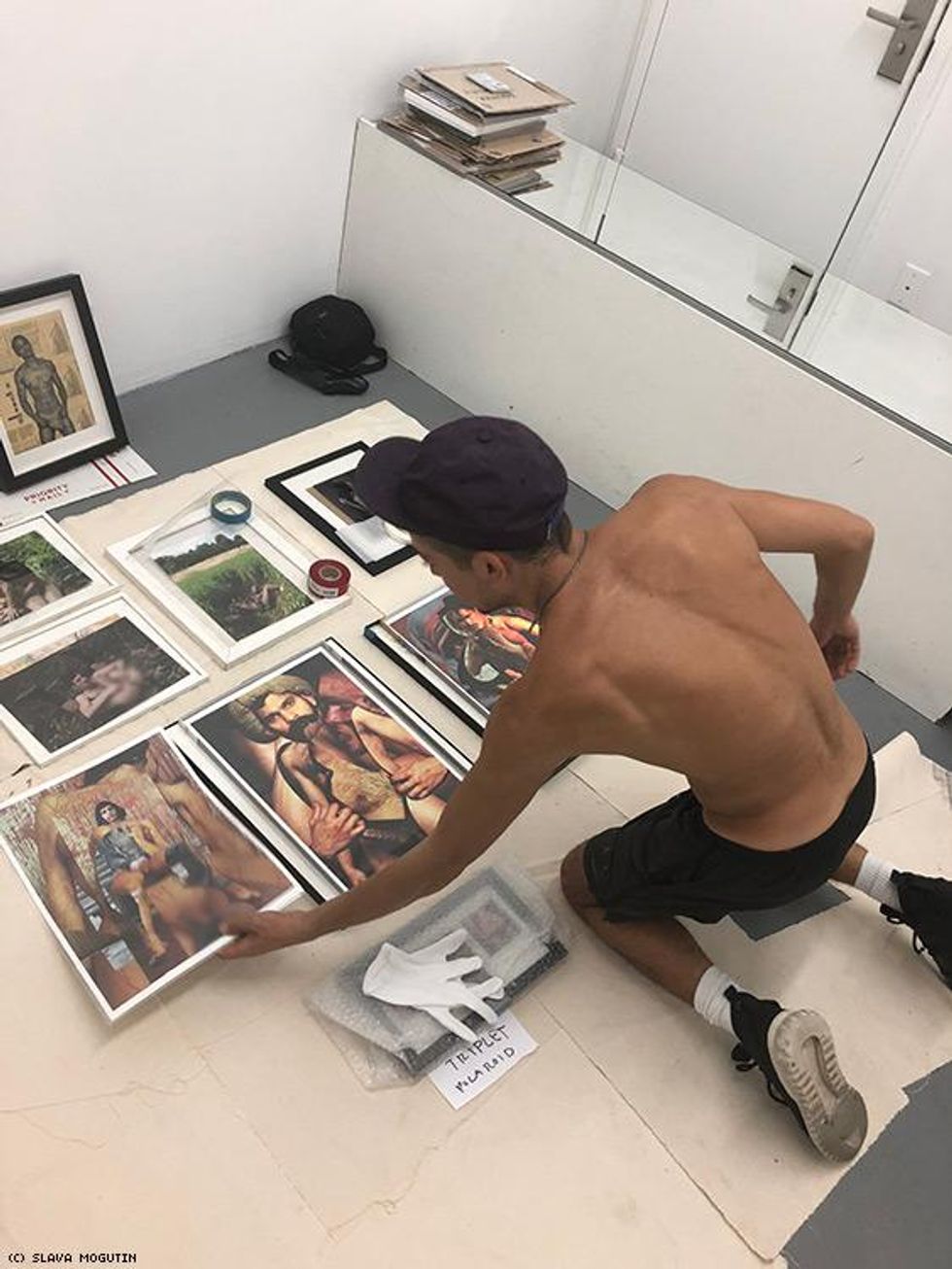
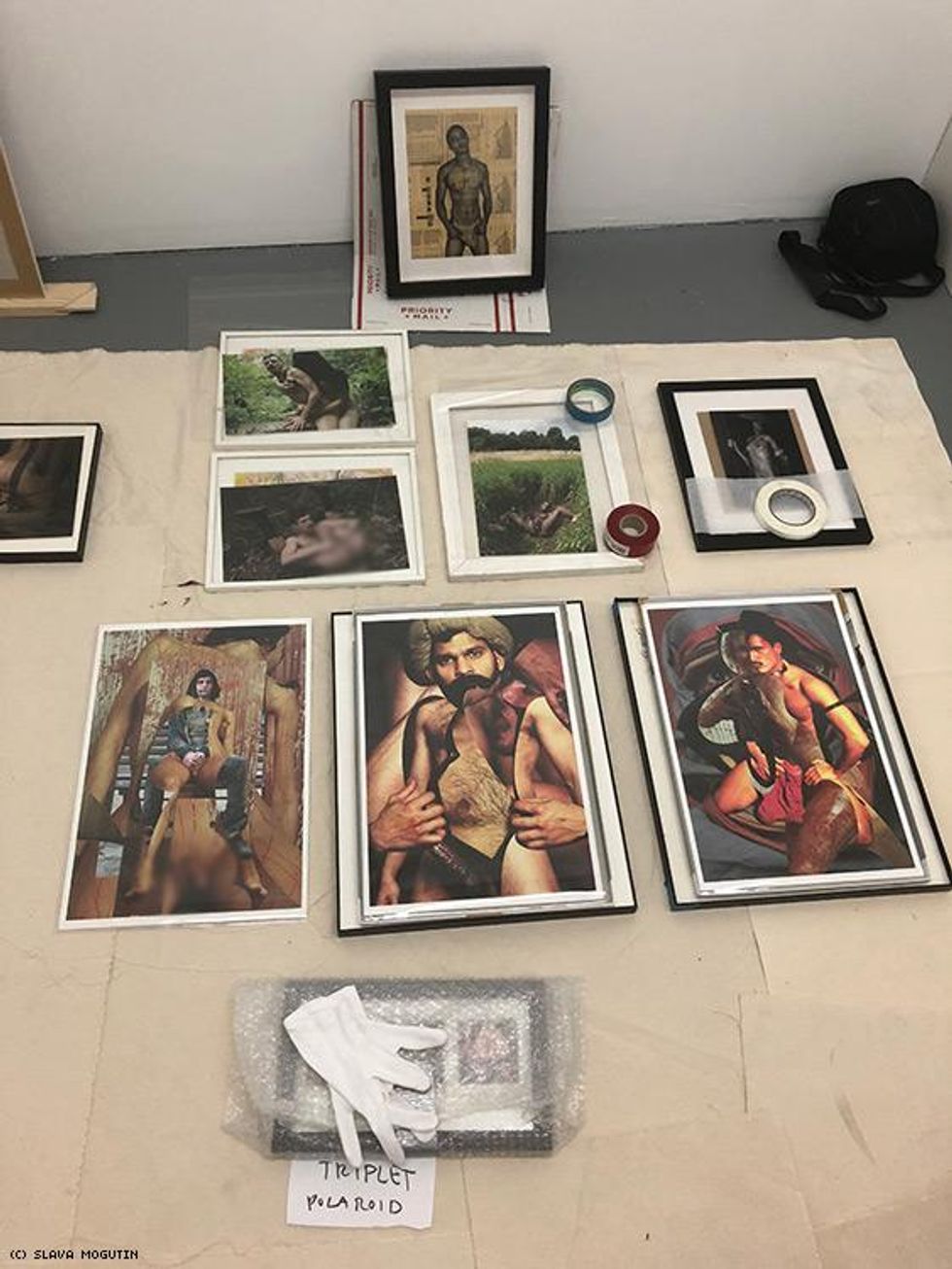
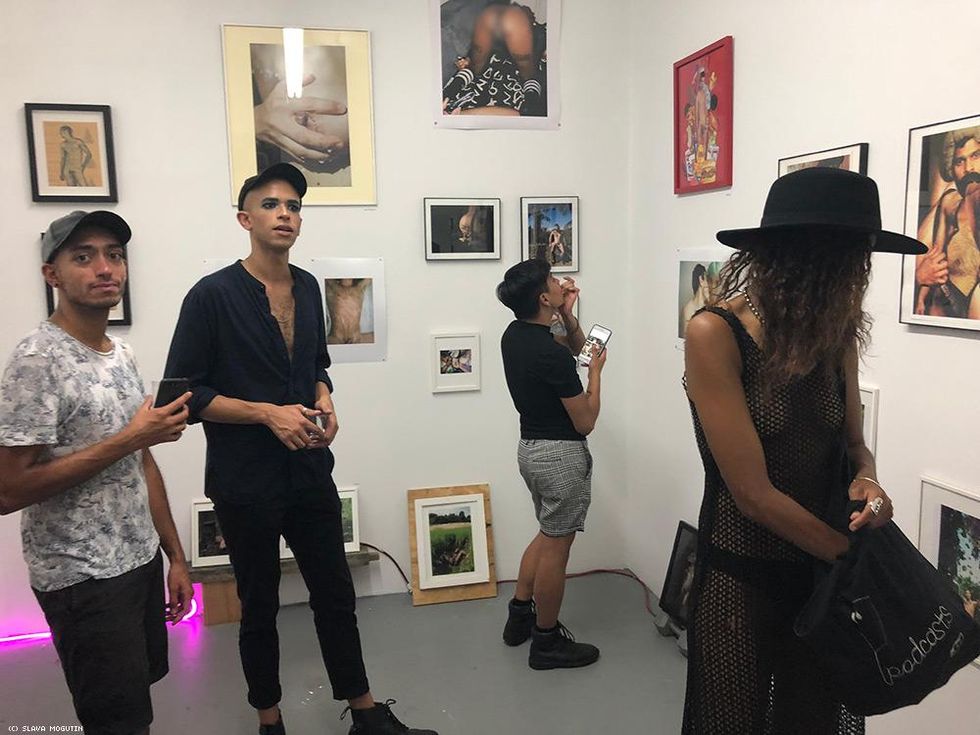
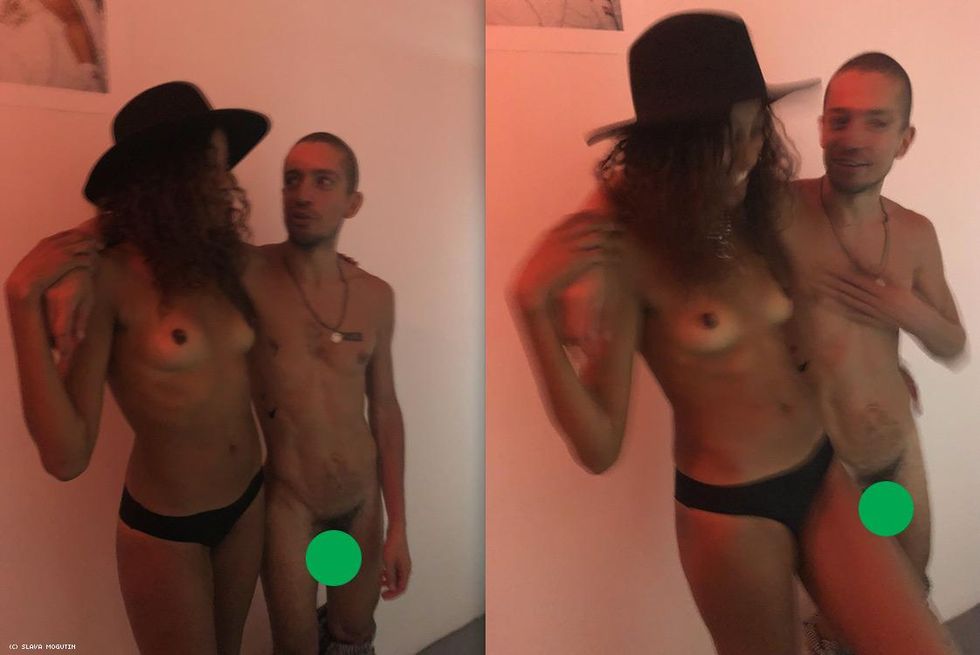
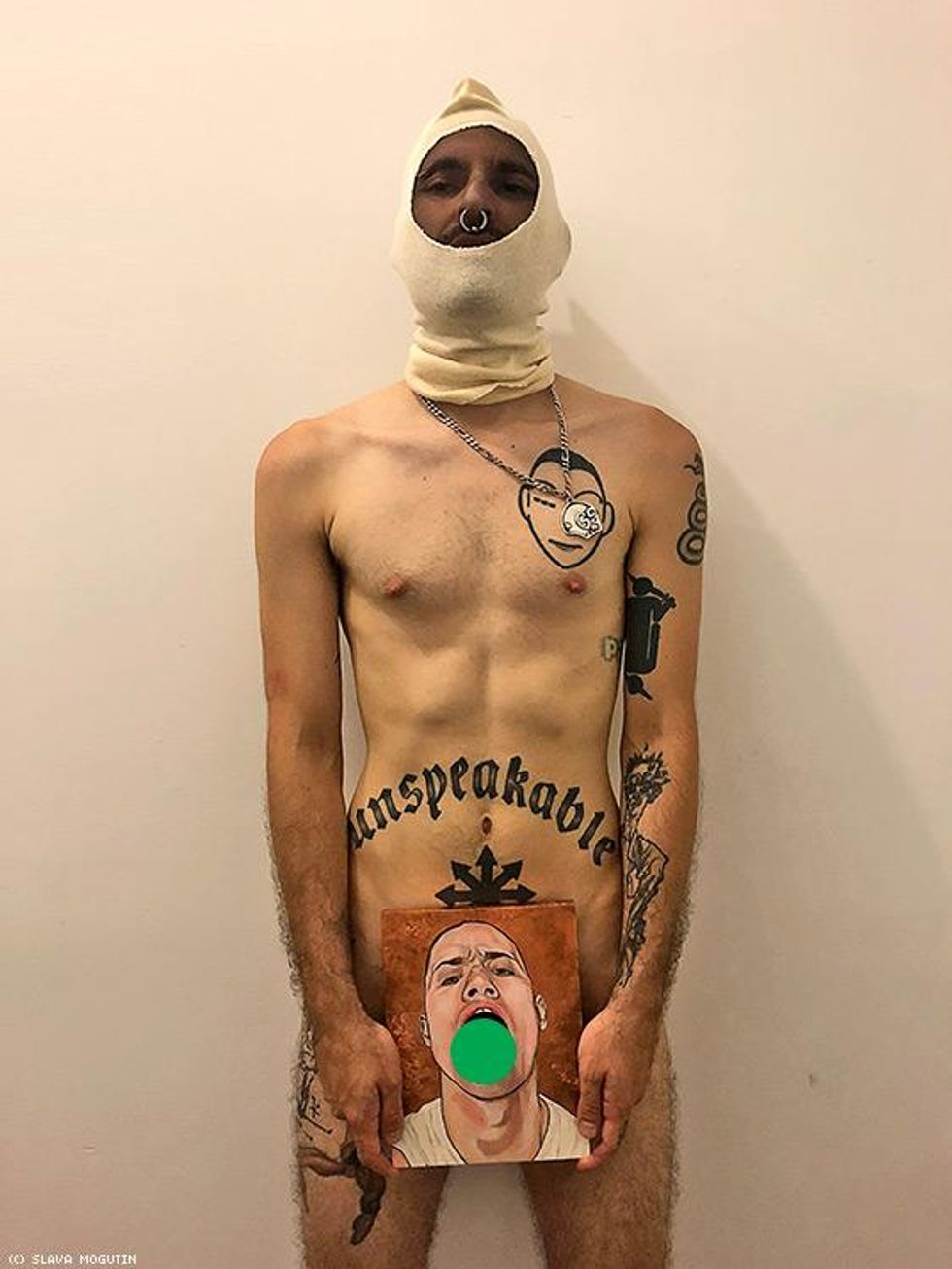
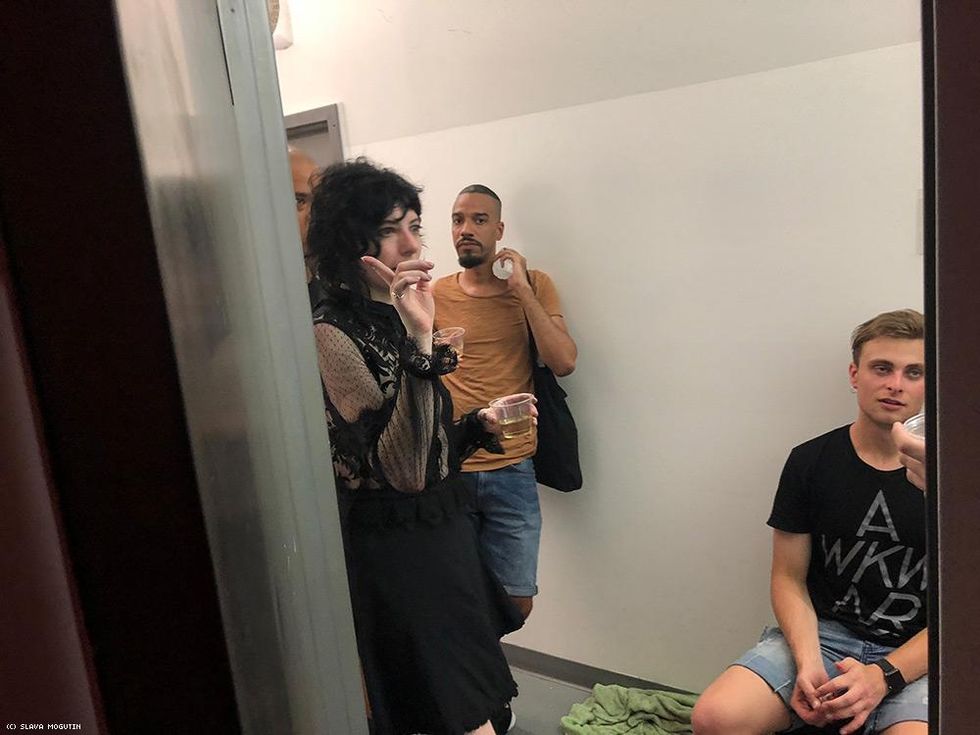
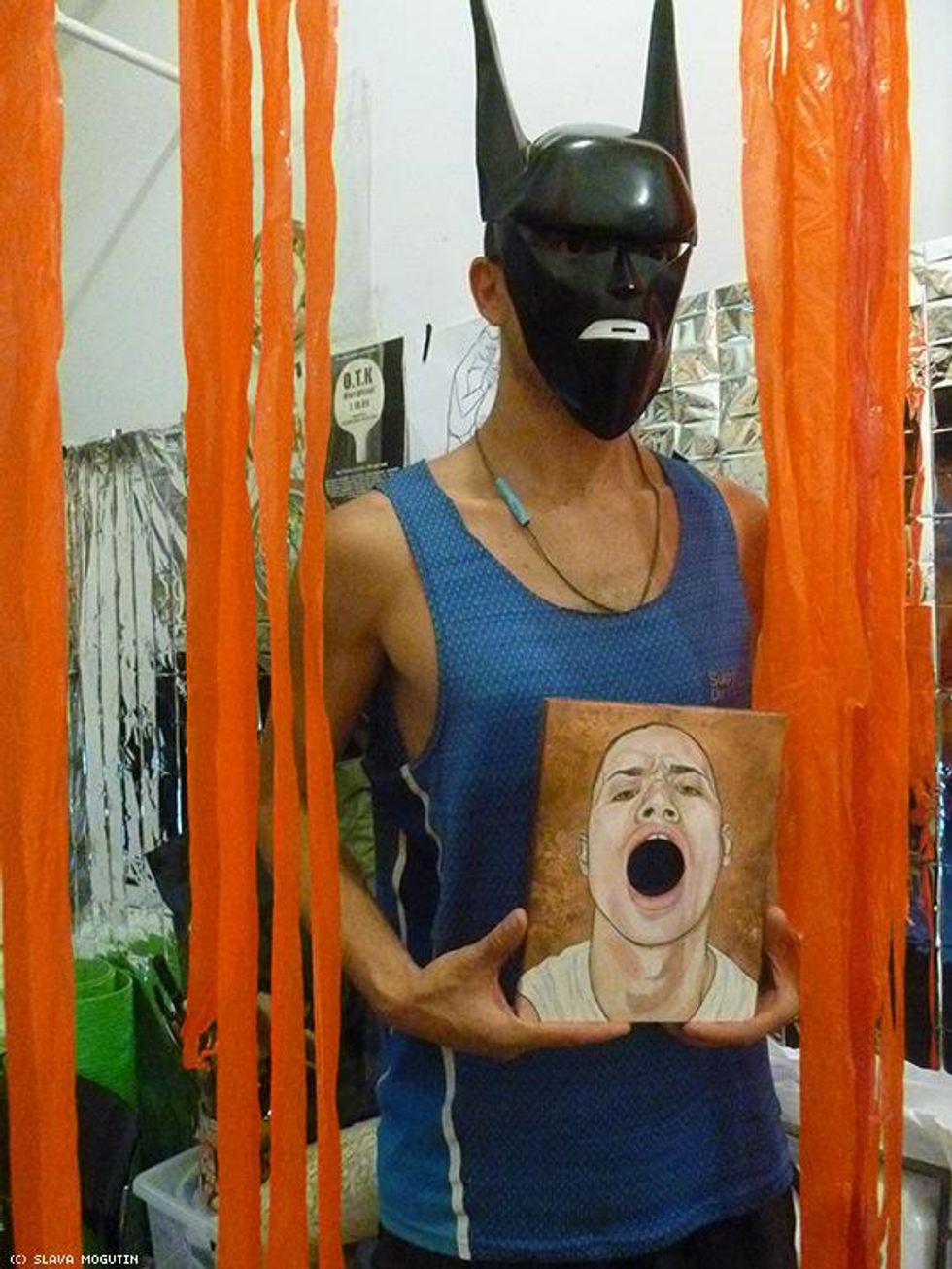
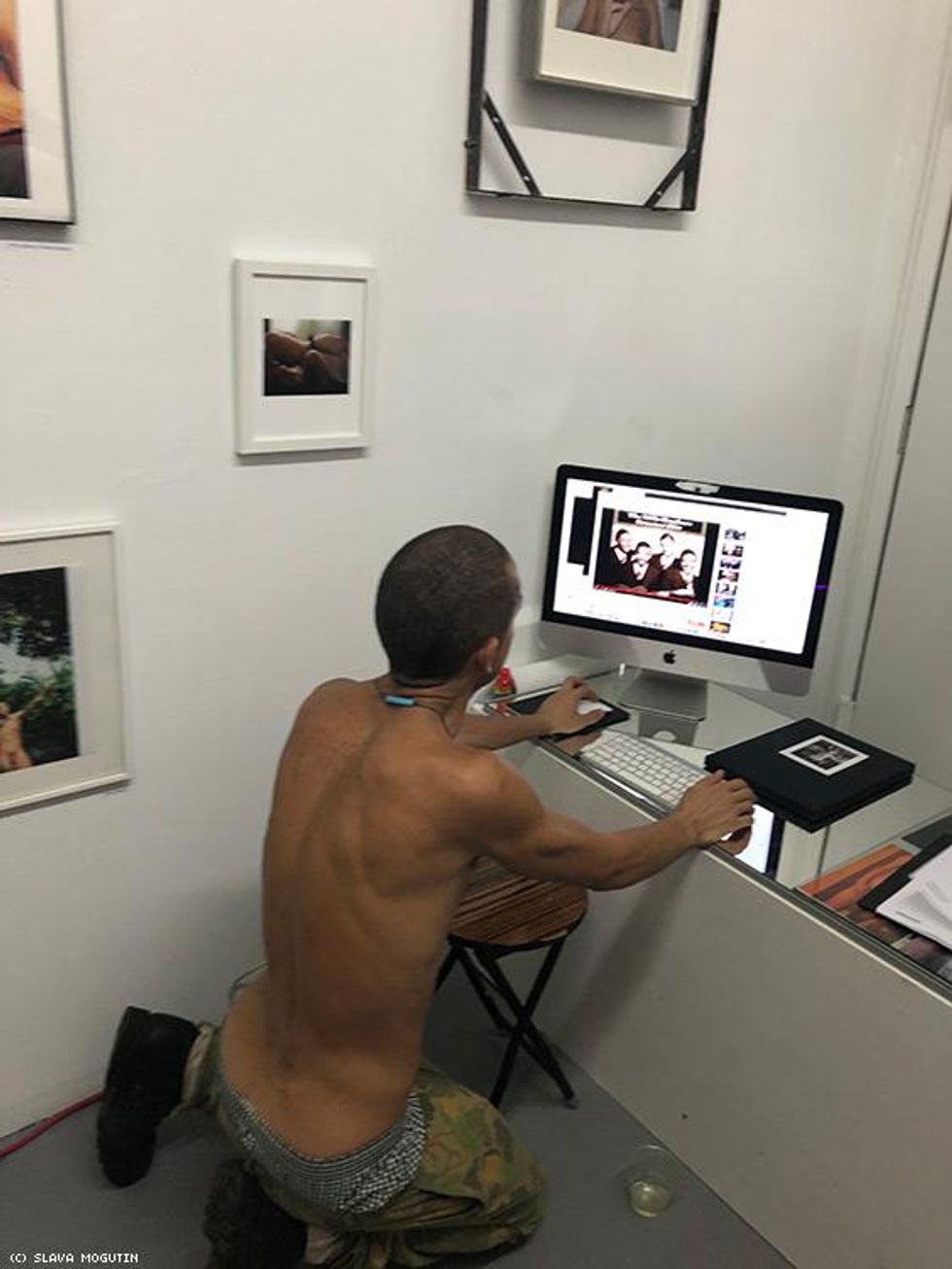
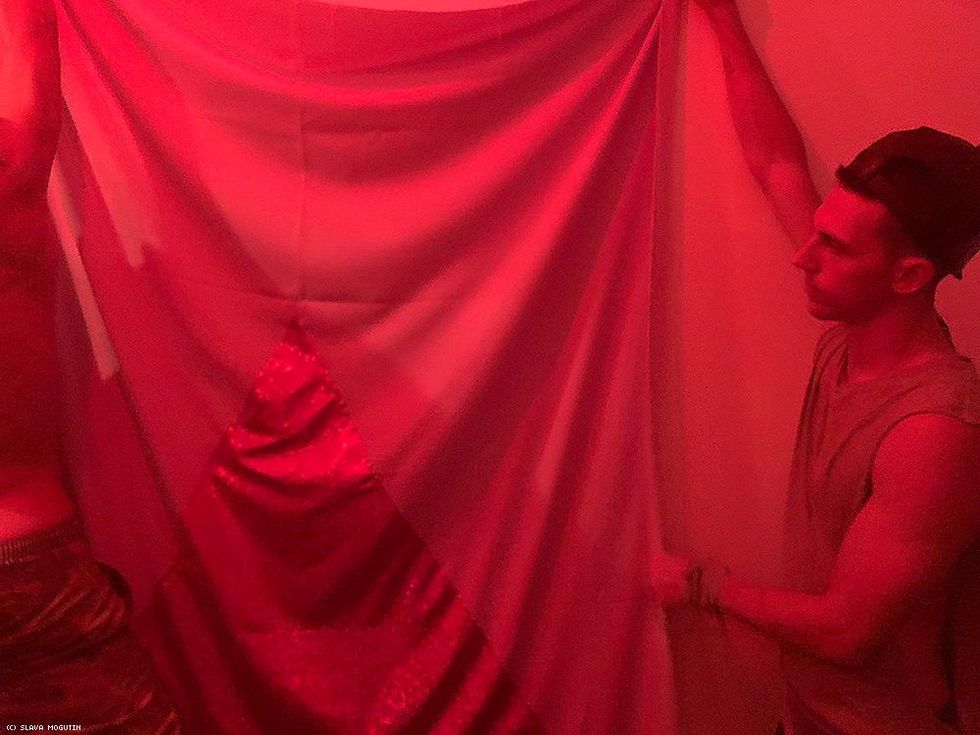
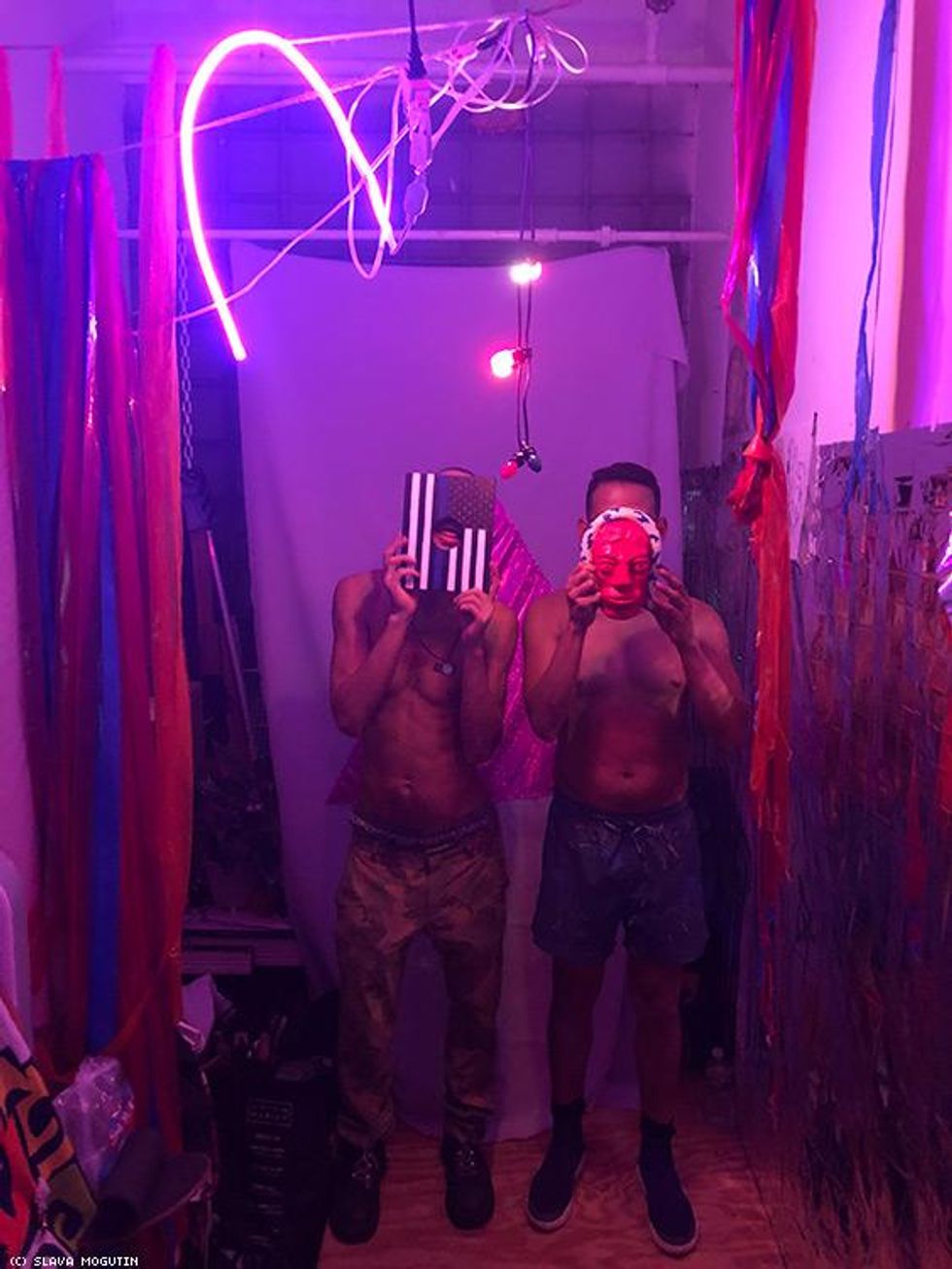
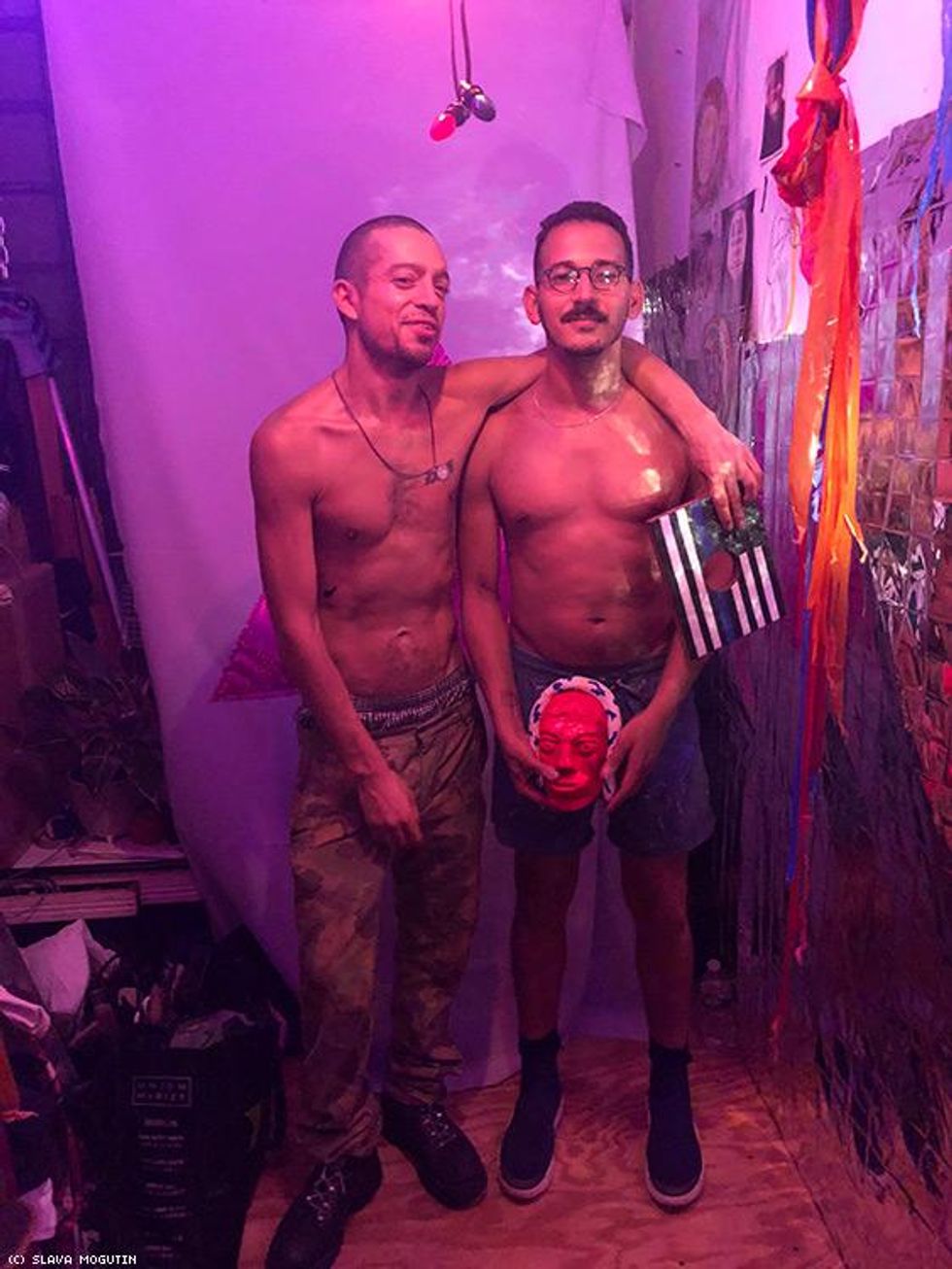
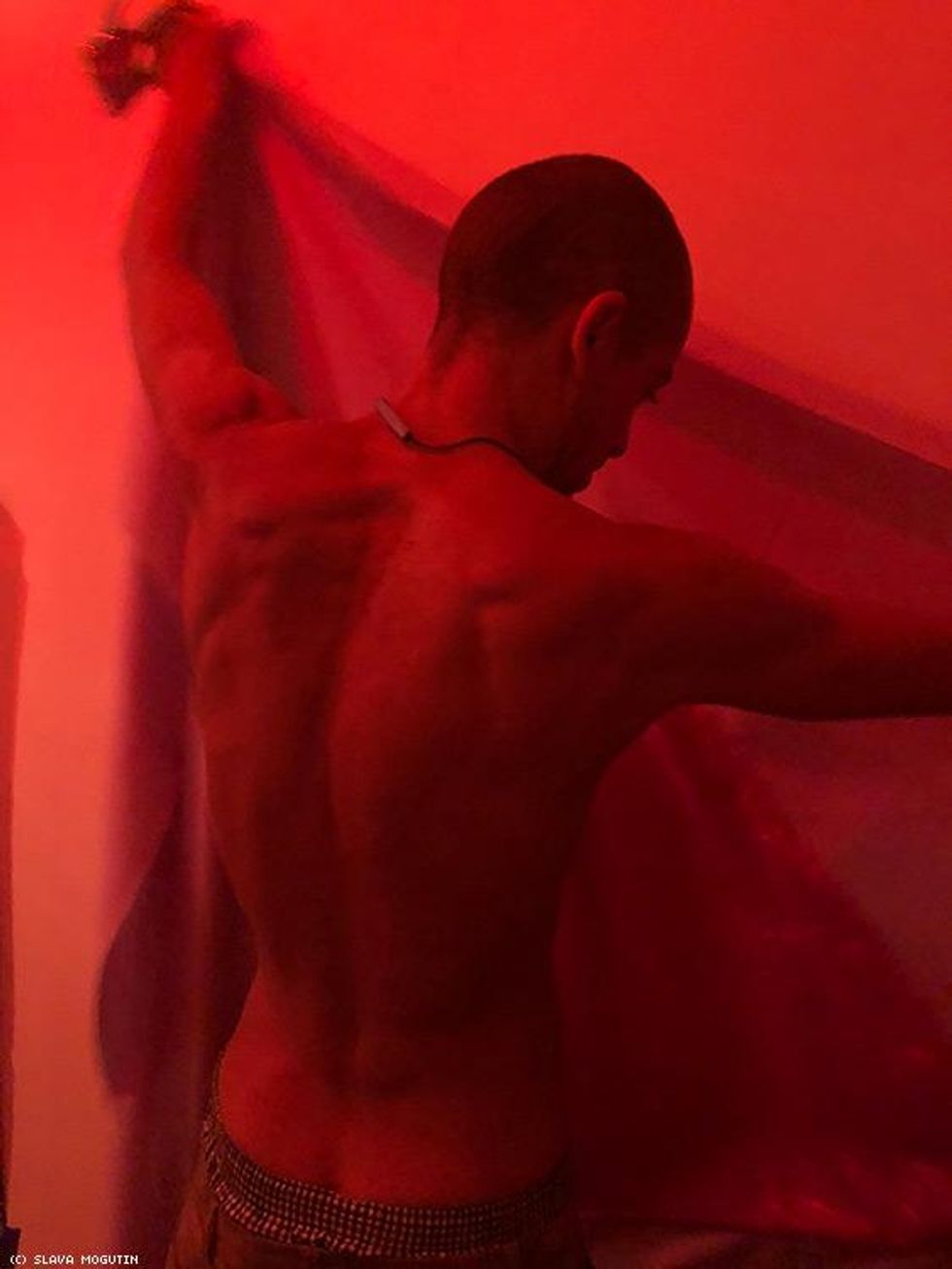
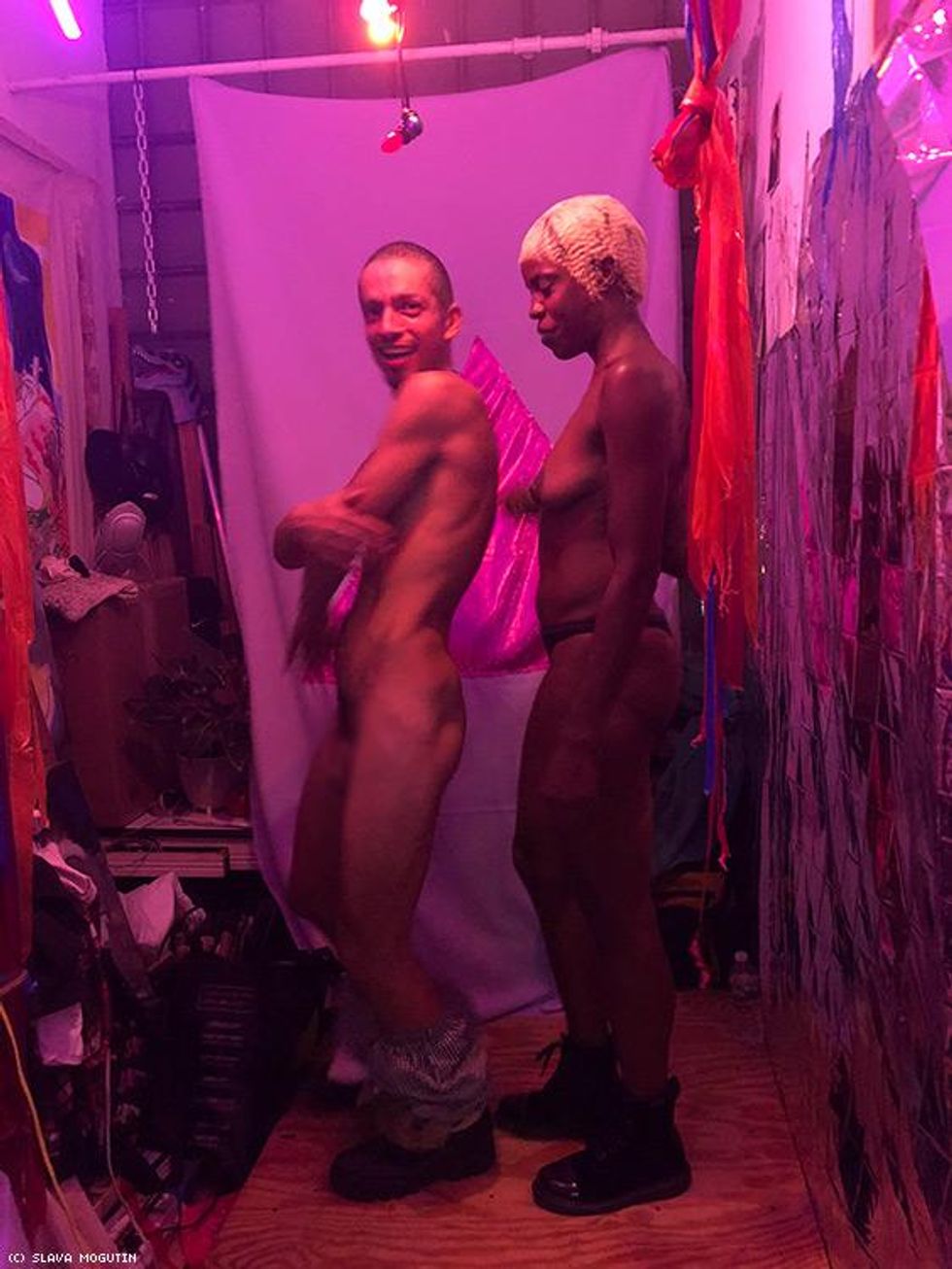
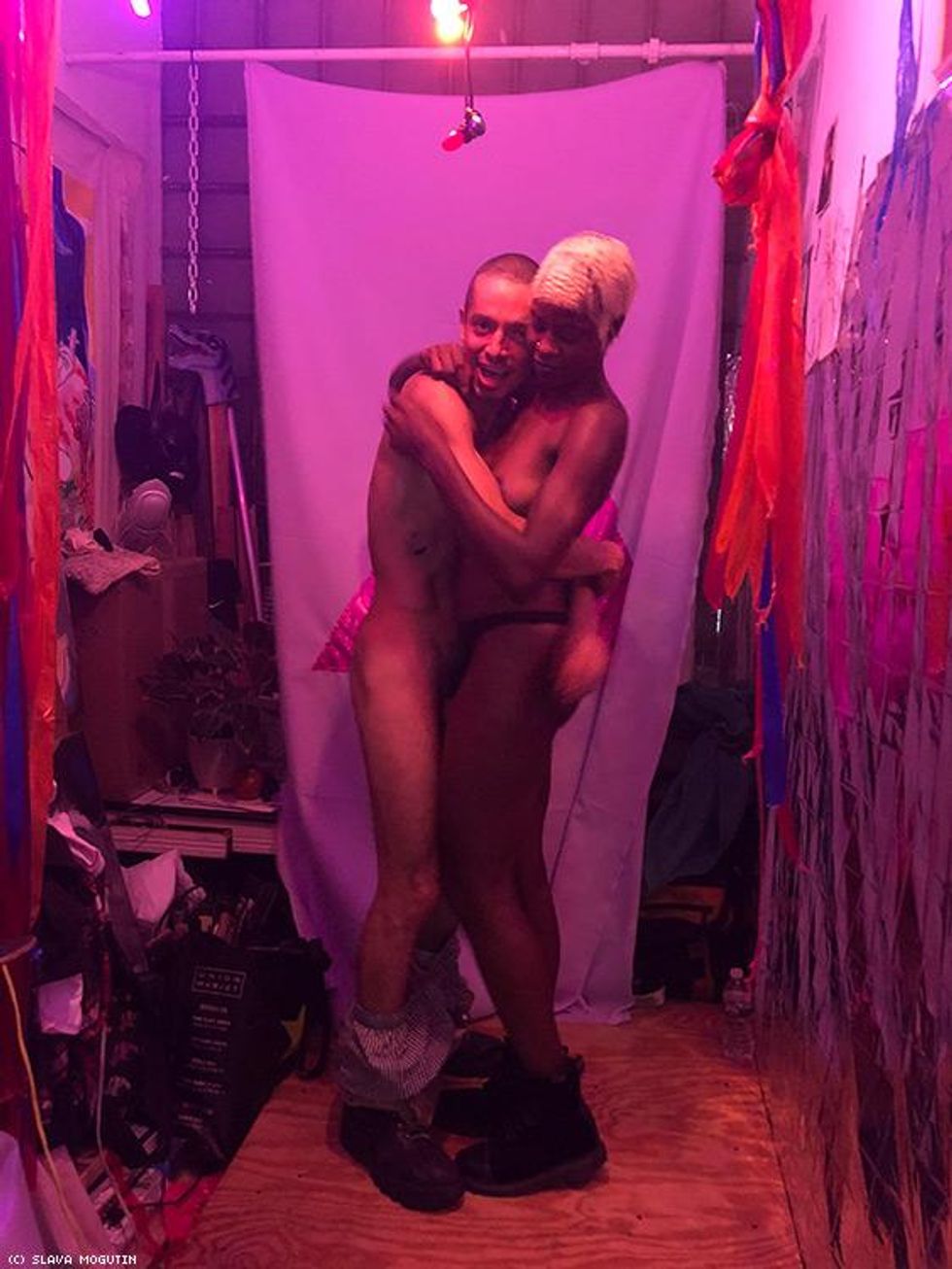
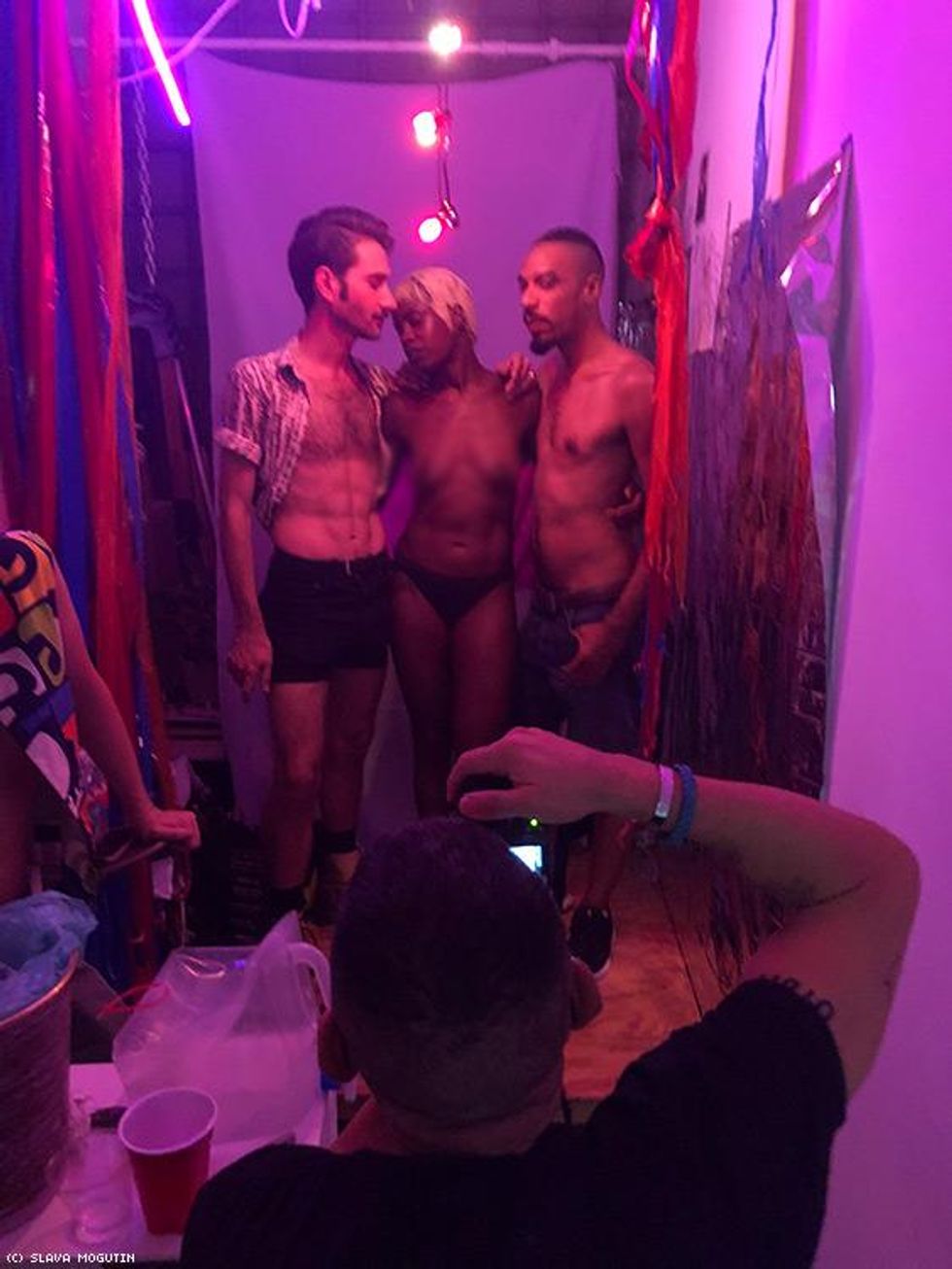
More Galleries
12 movies to watch if you loved ‘Red, White & Royal Blue’
October 27 2025 6:02 PM
LGBTQ+ History Month: 33 queer movies to watch on streaming
October 02 2025 9:02 AM
Drag Me to the Catskills: A weekend of camp and comedy in the woods
May 29 2025 8:30 PM
Boys! Boys! Boys! podcast: A new voice in queer culture
May 01 2025 5:03 PM
Cobblestones, castles, and culture: Your LGBTQ+ guide to Edinburgh
April 30 2025 12:44 PM





